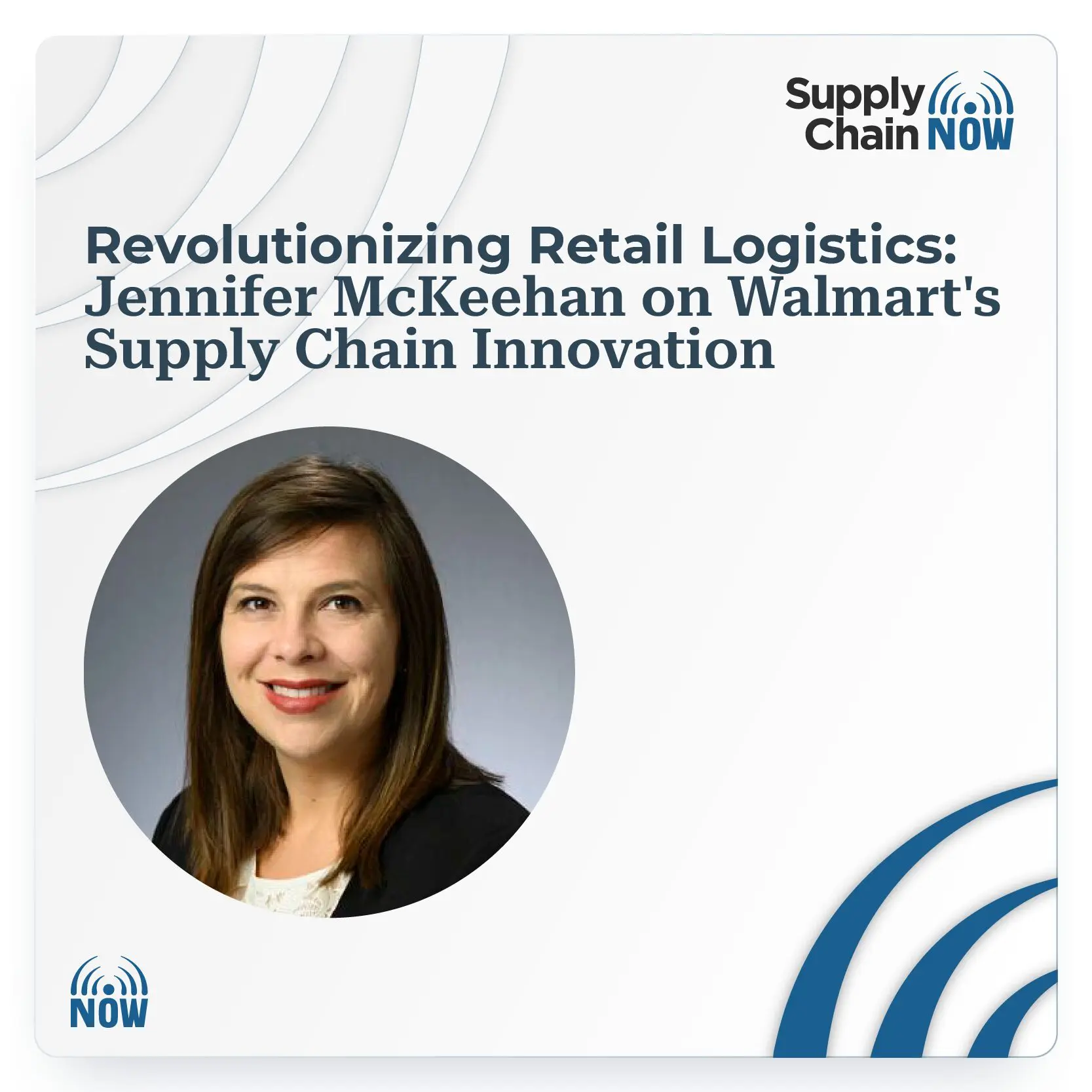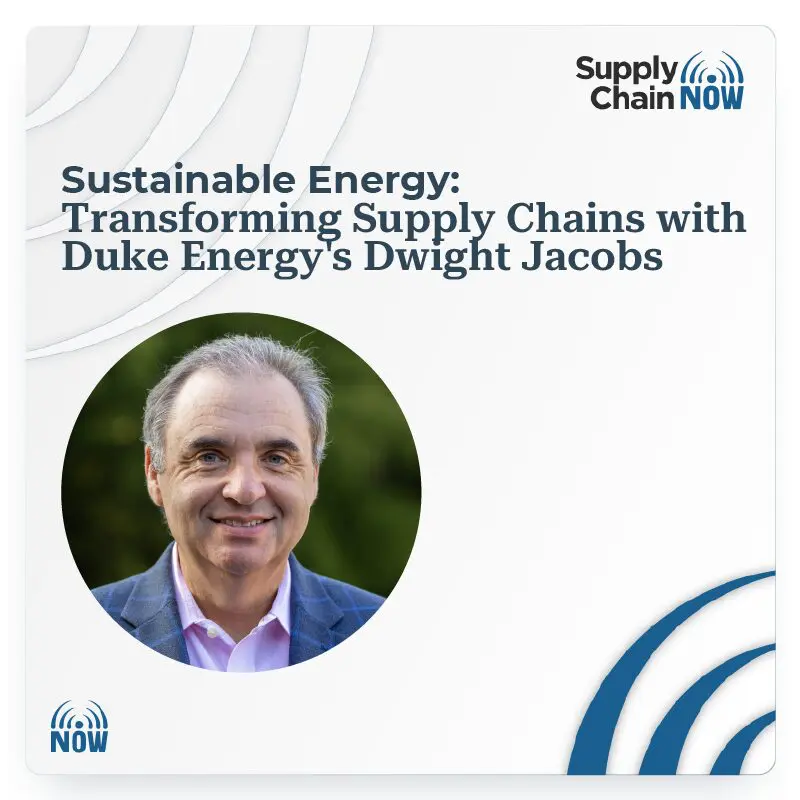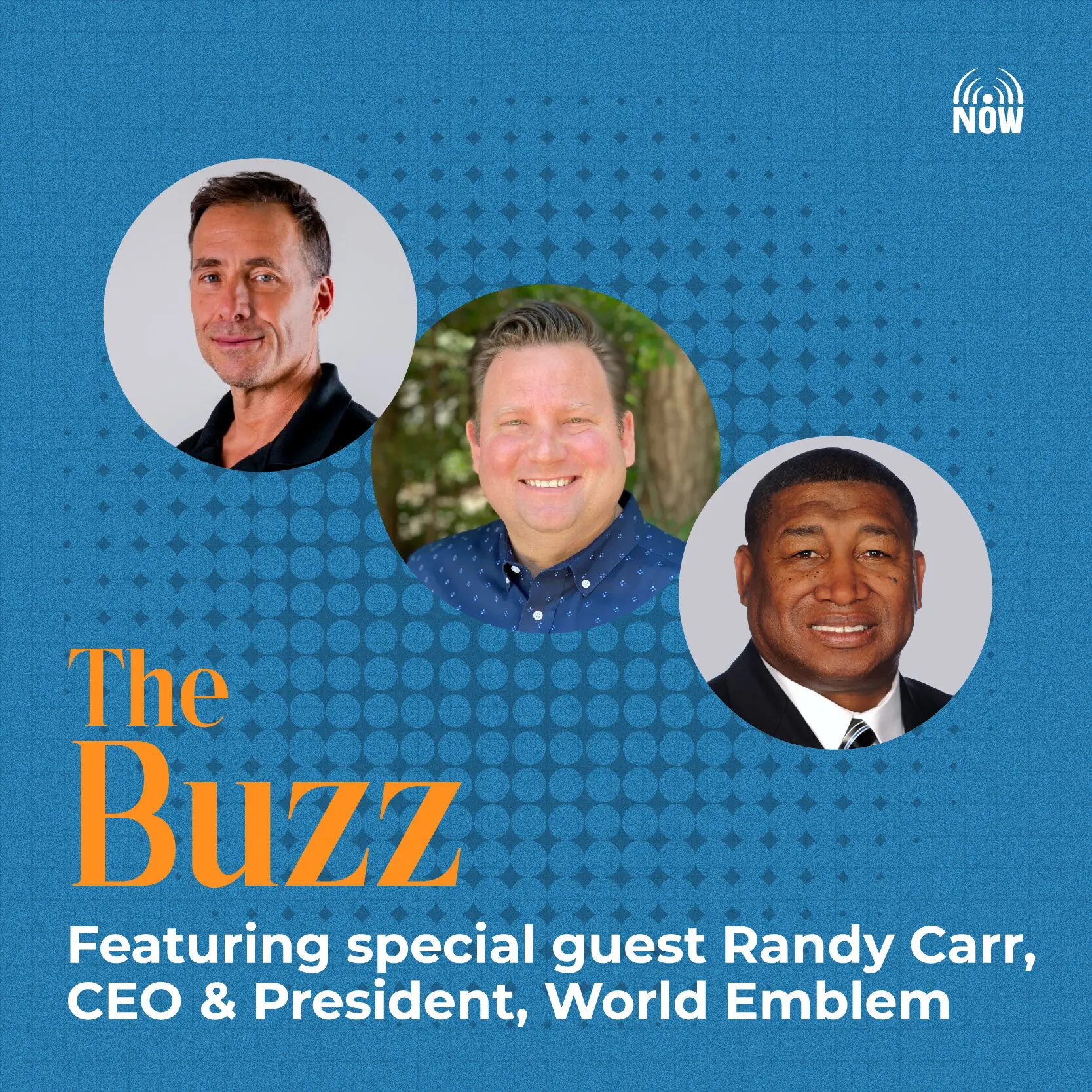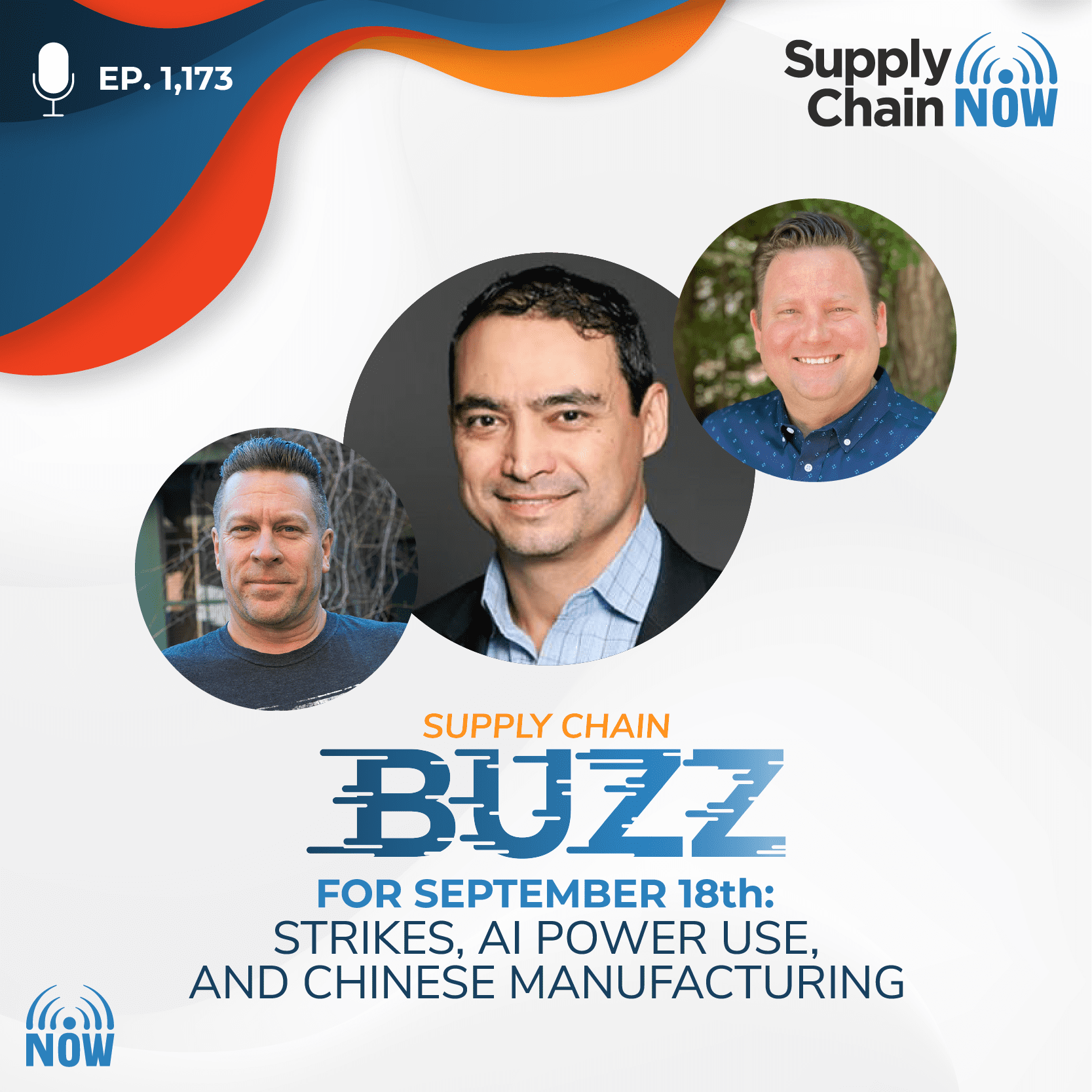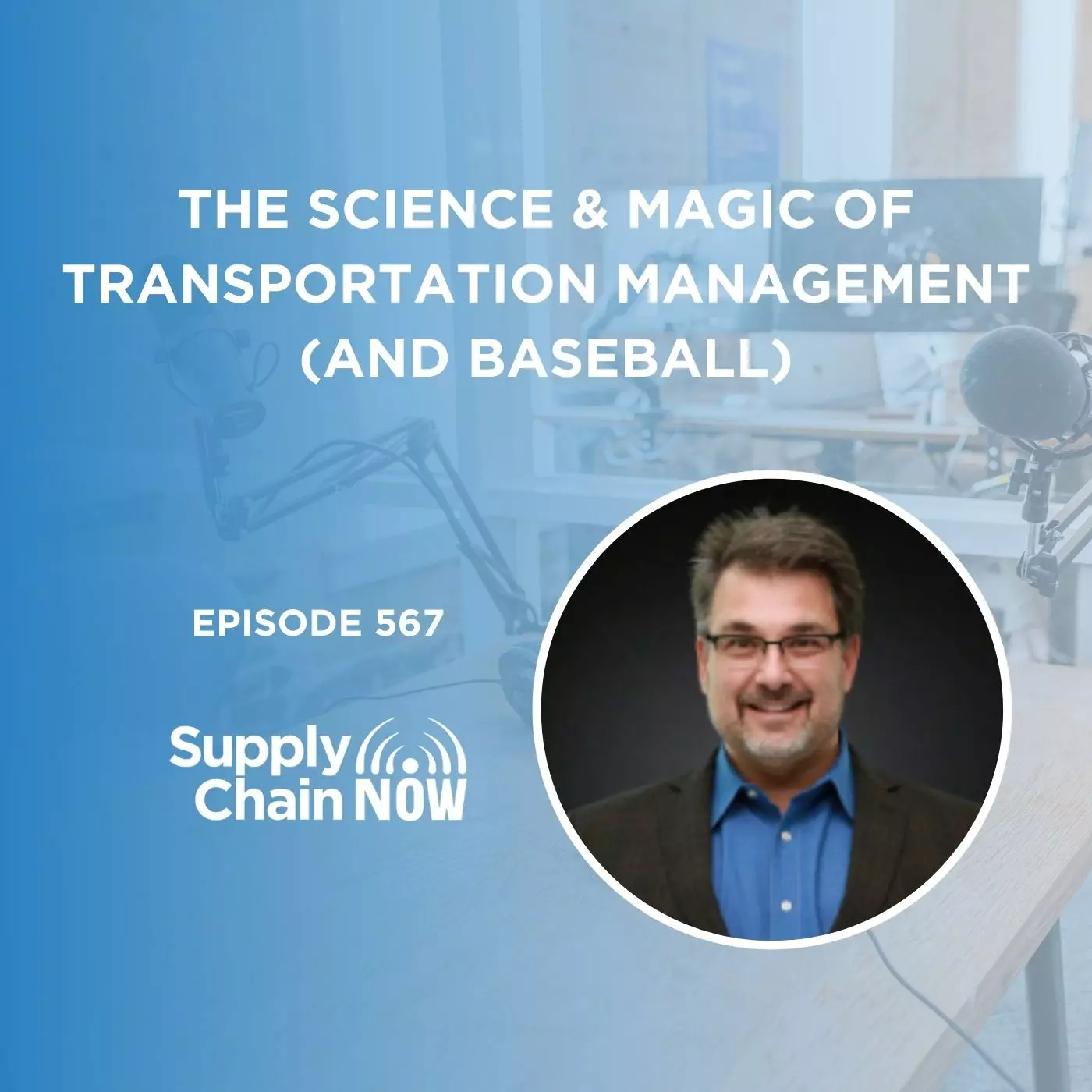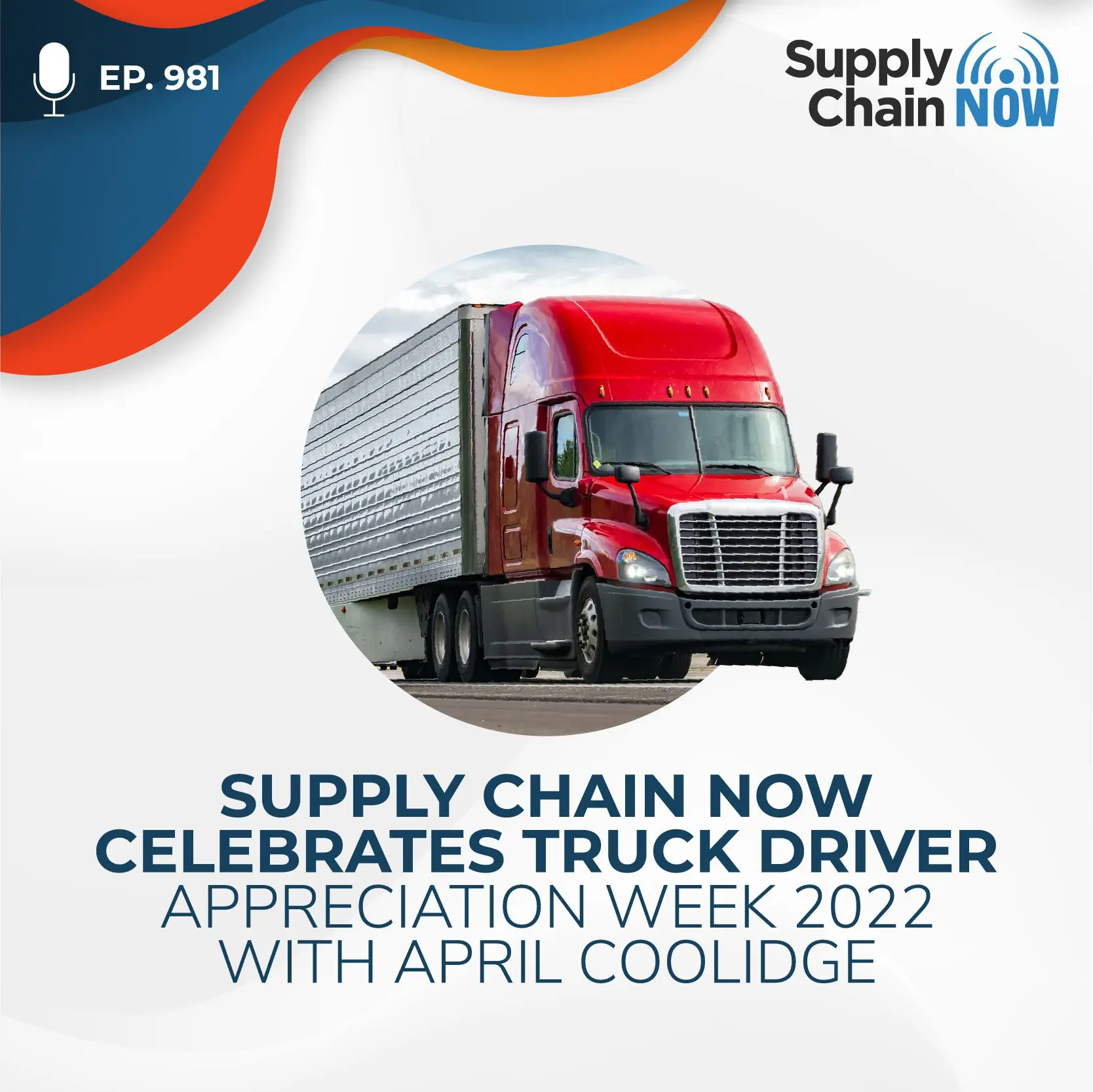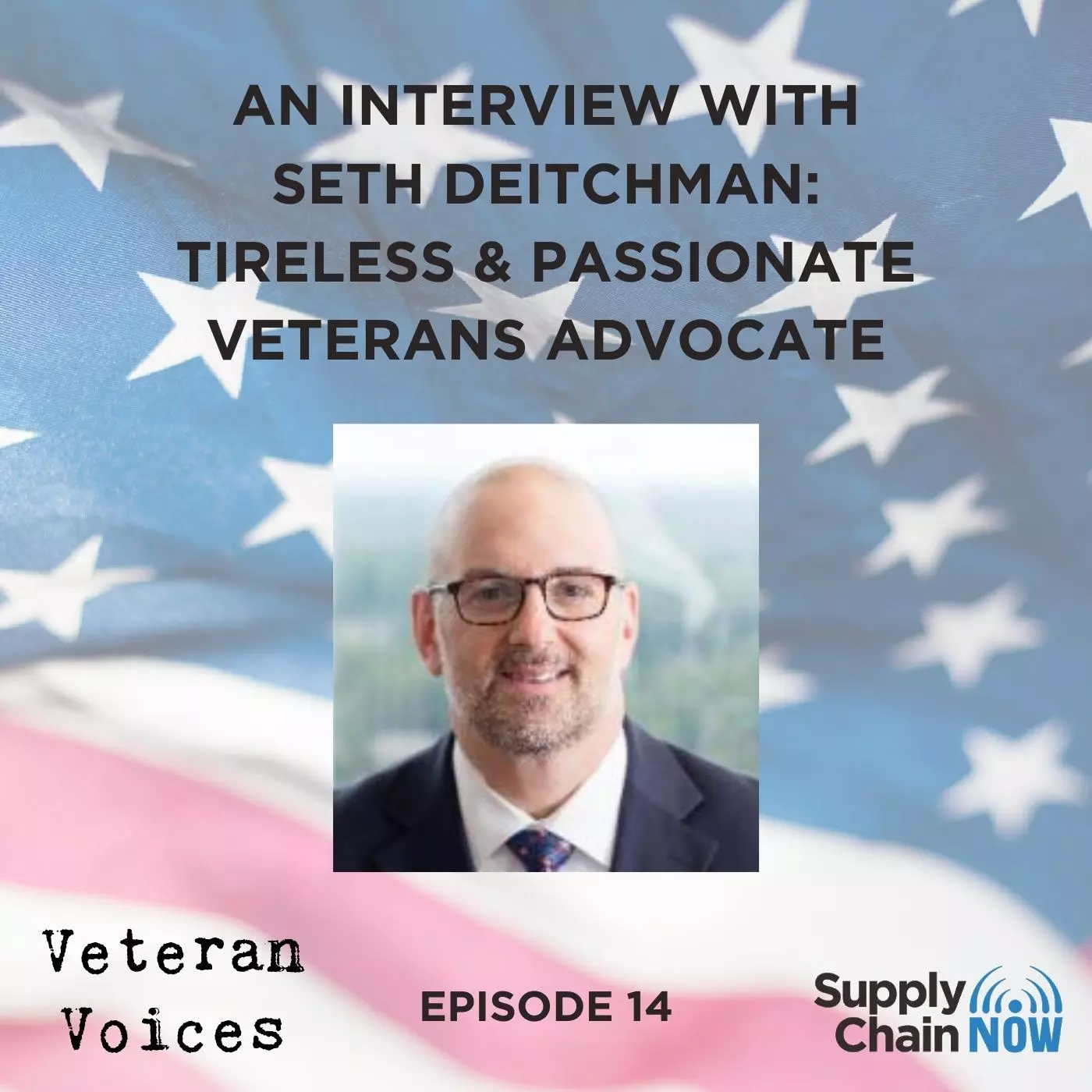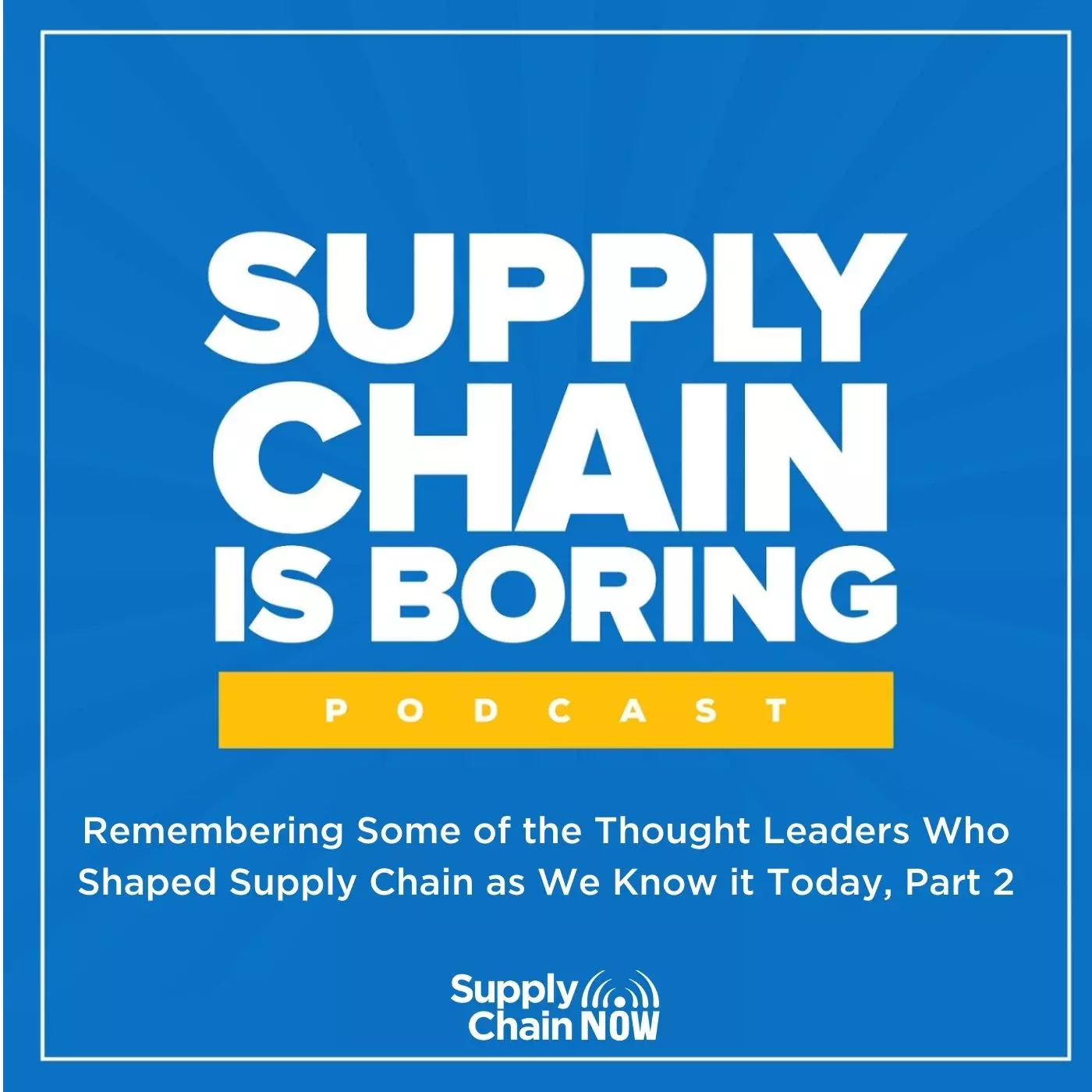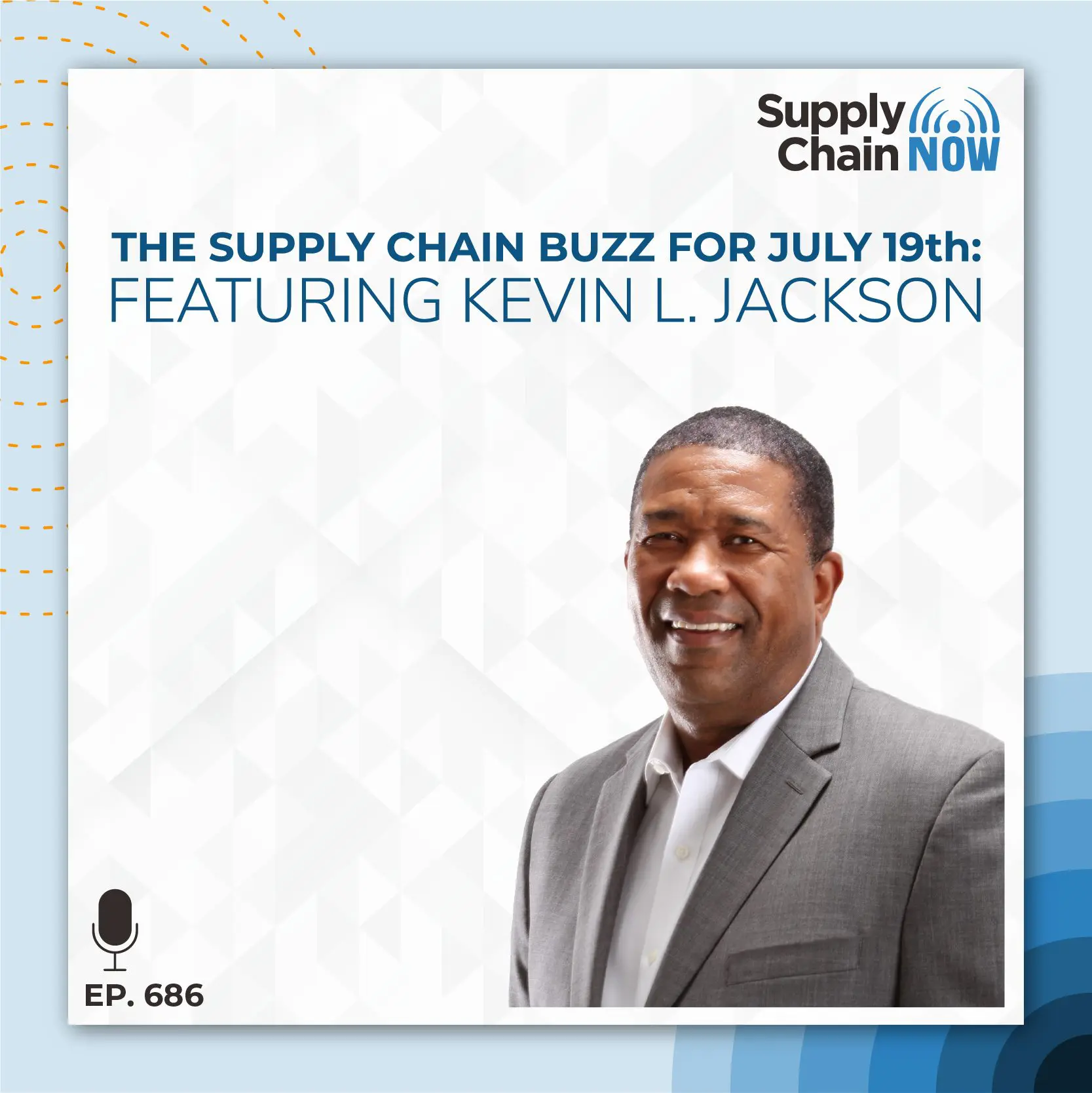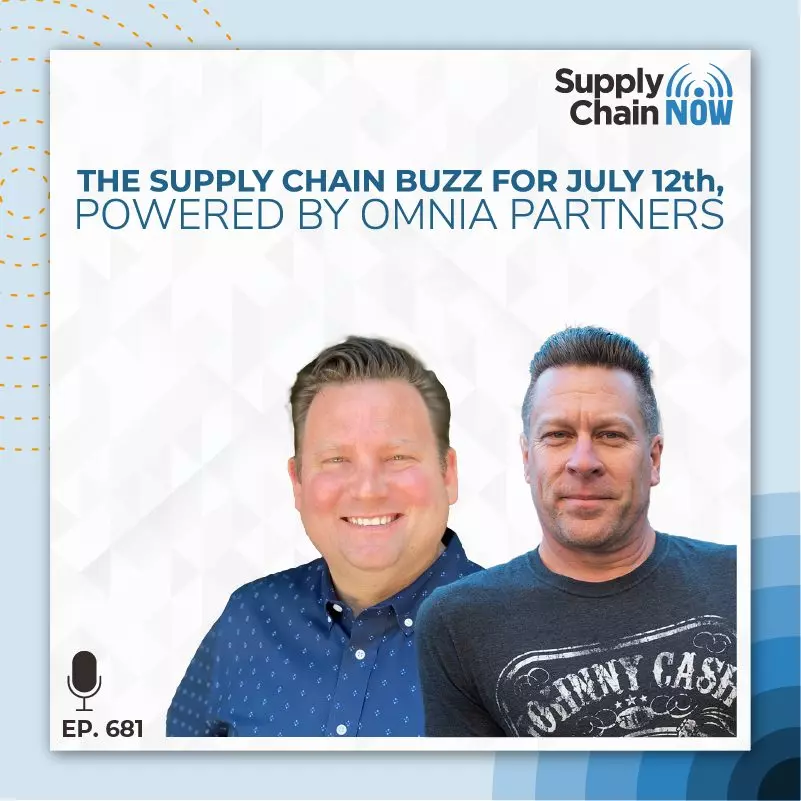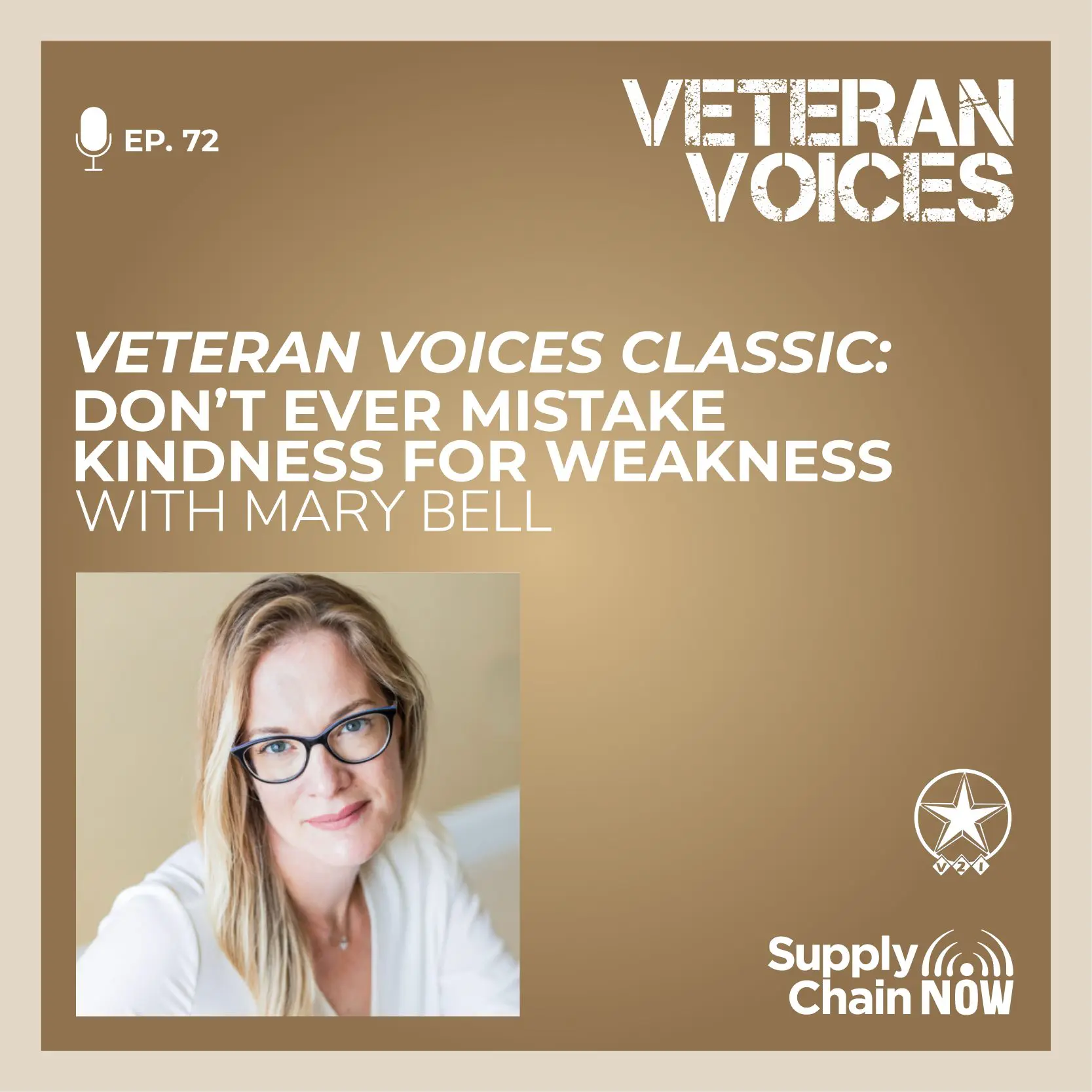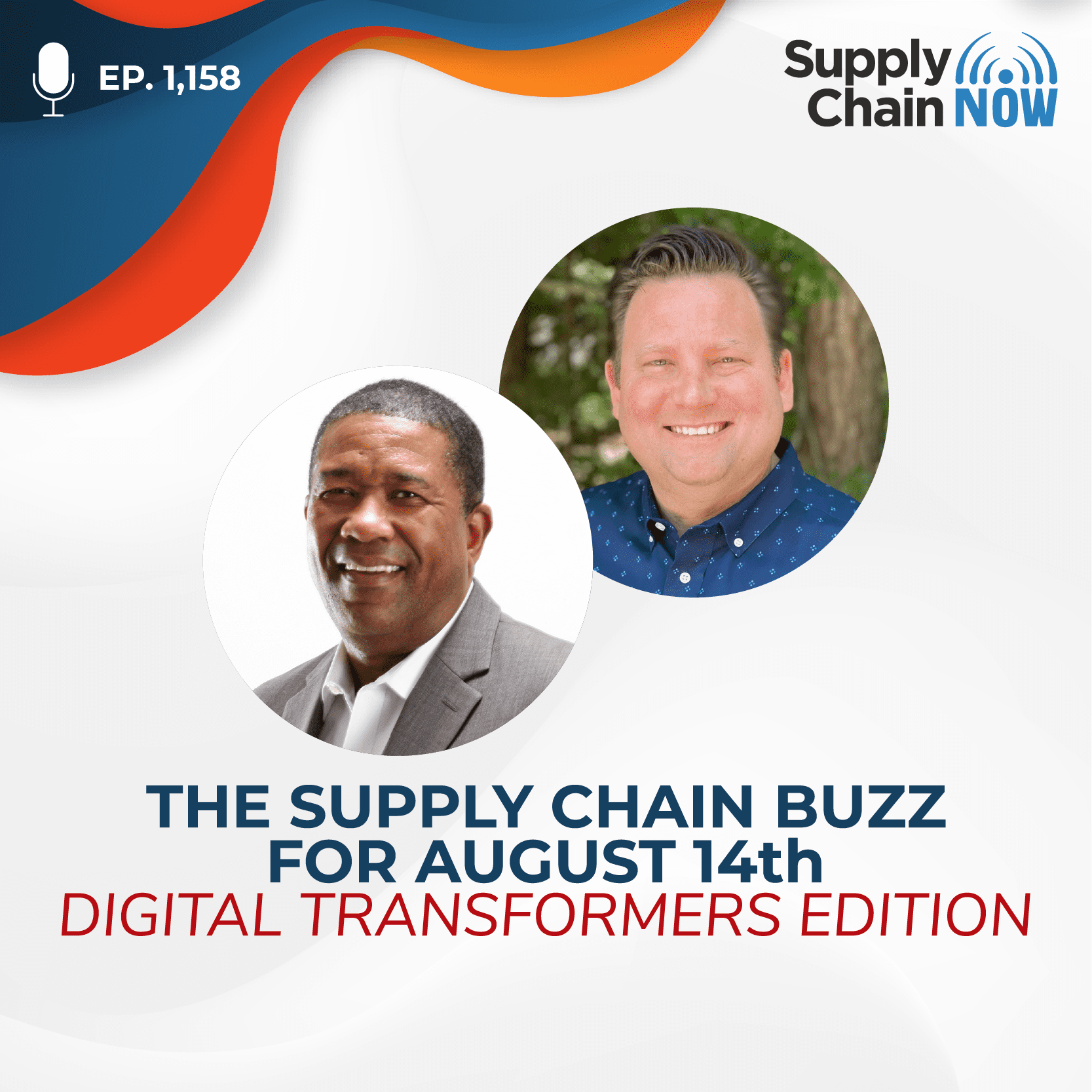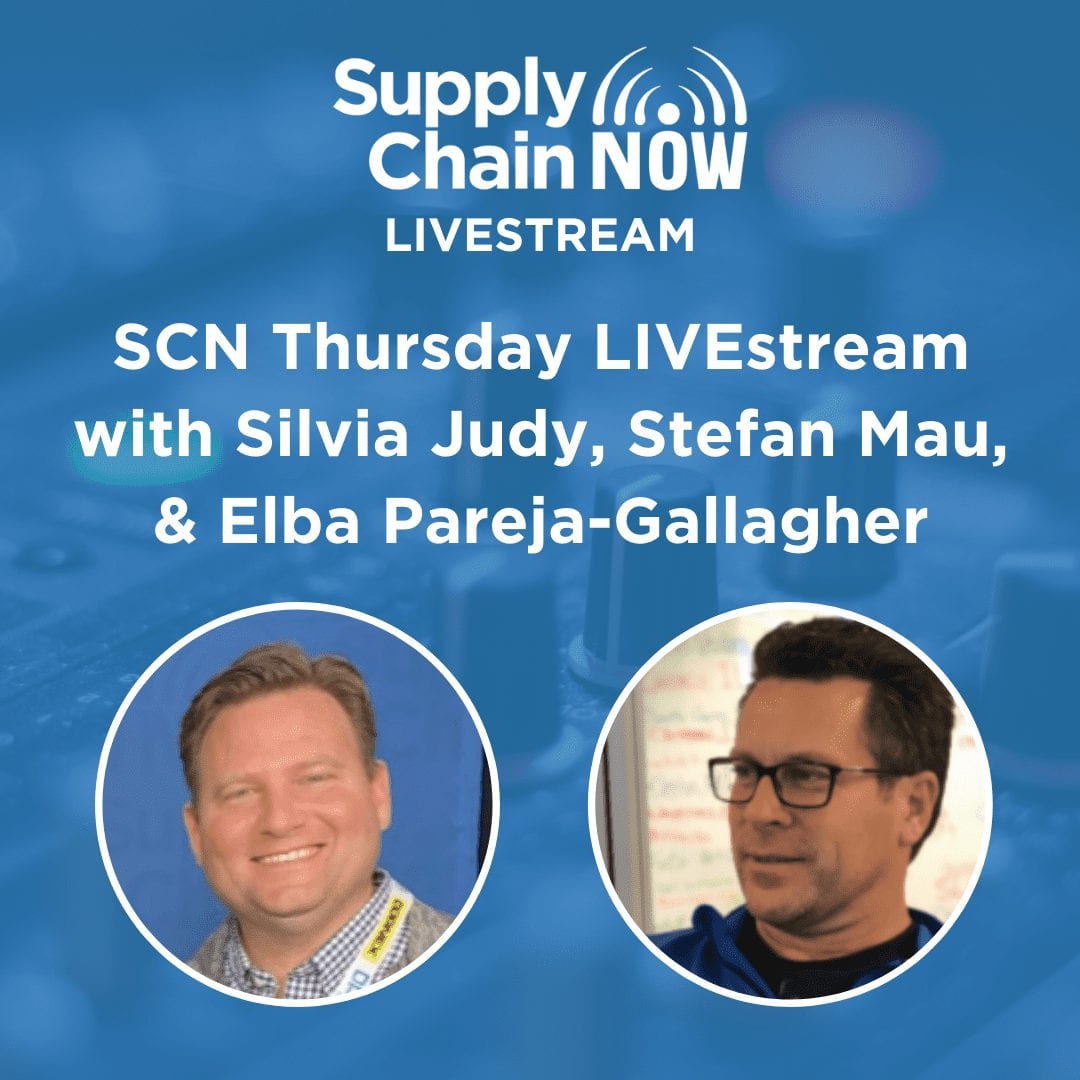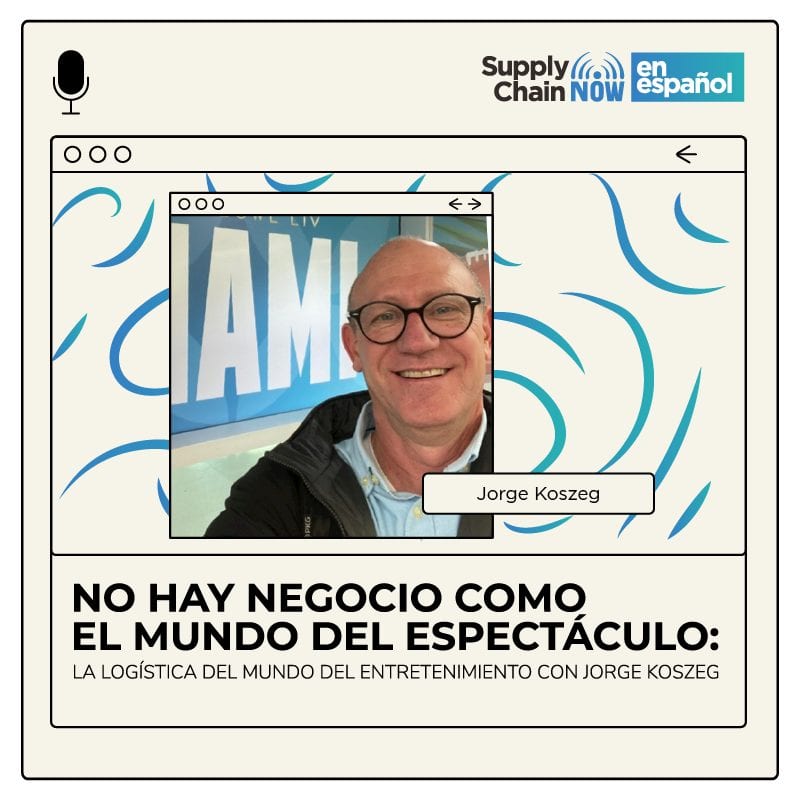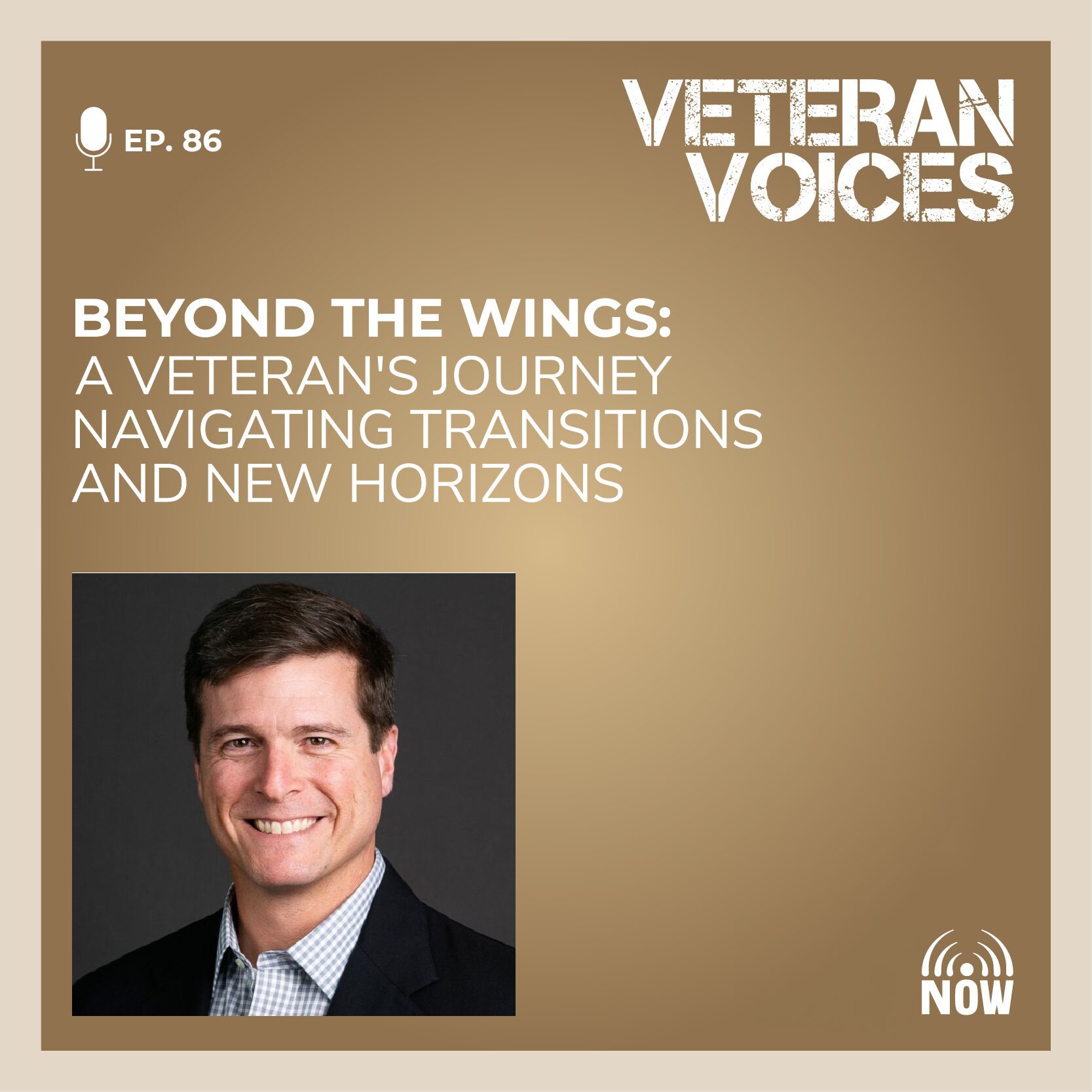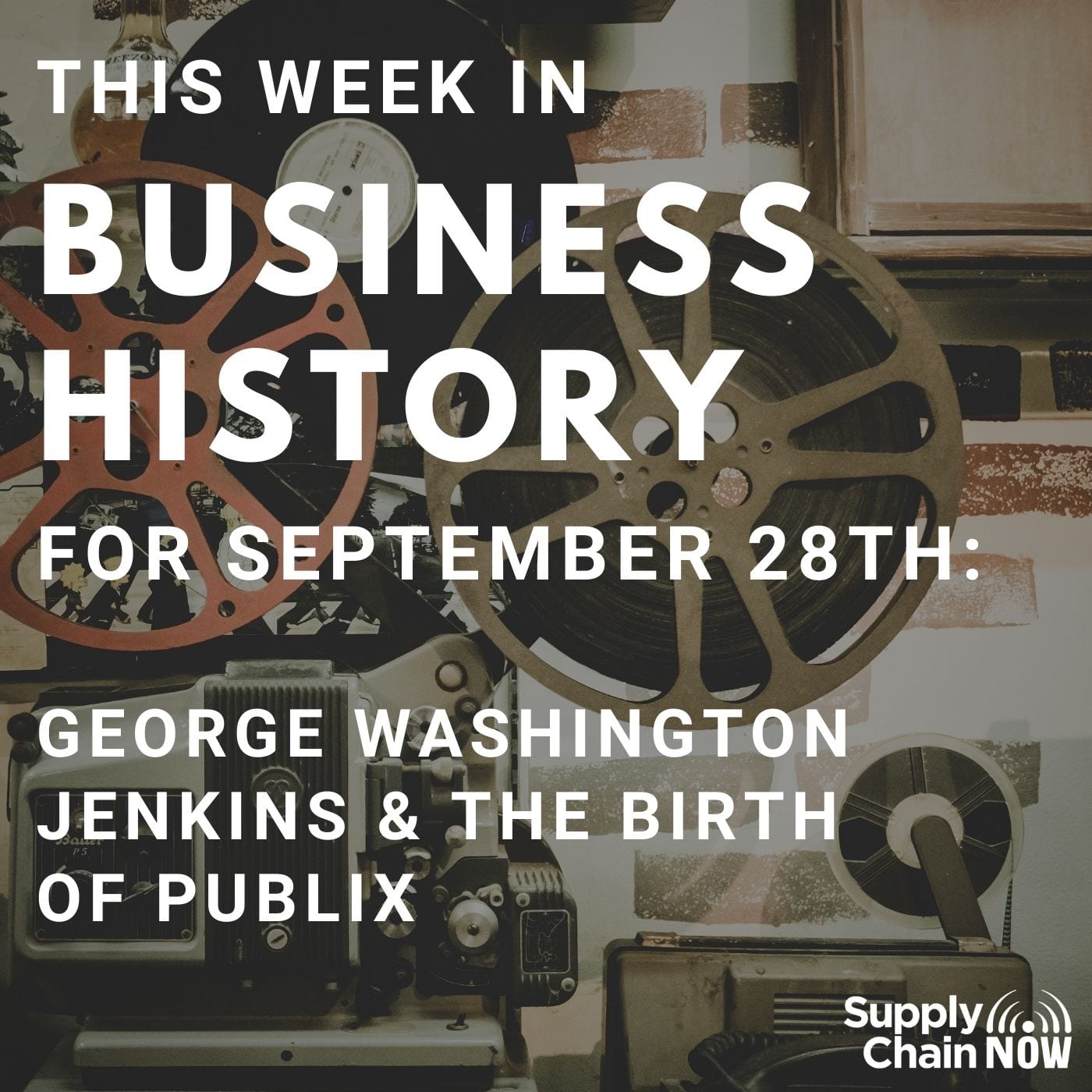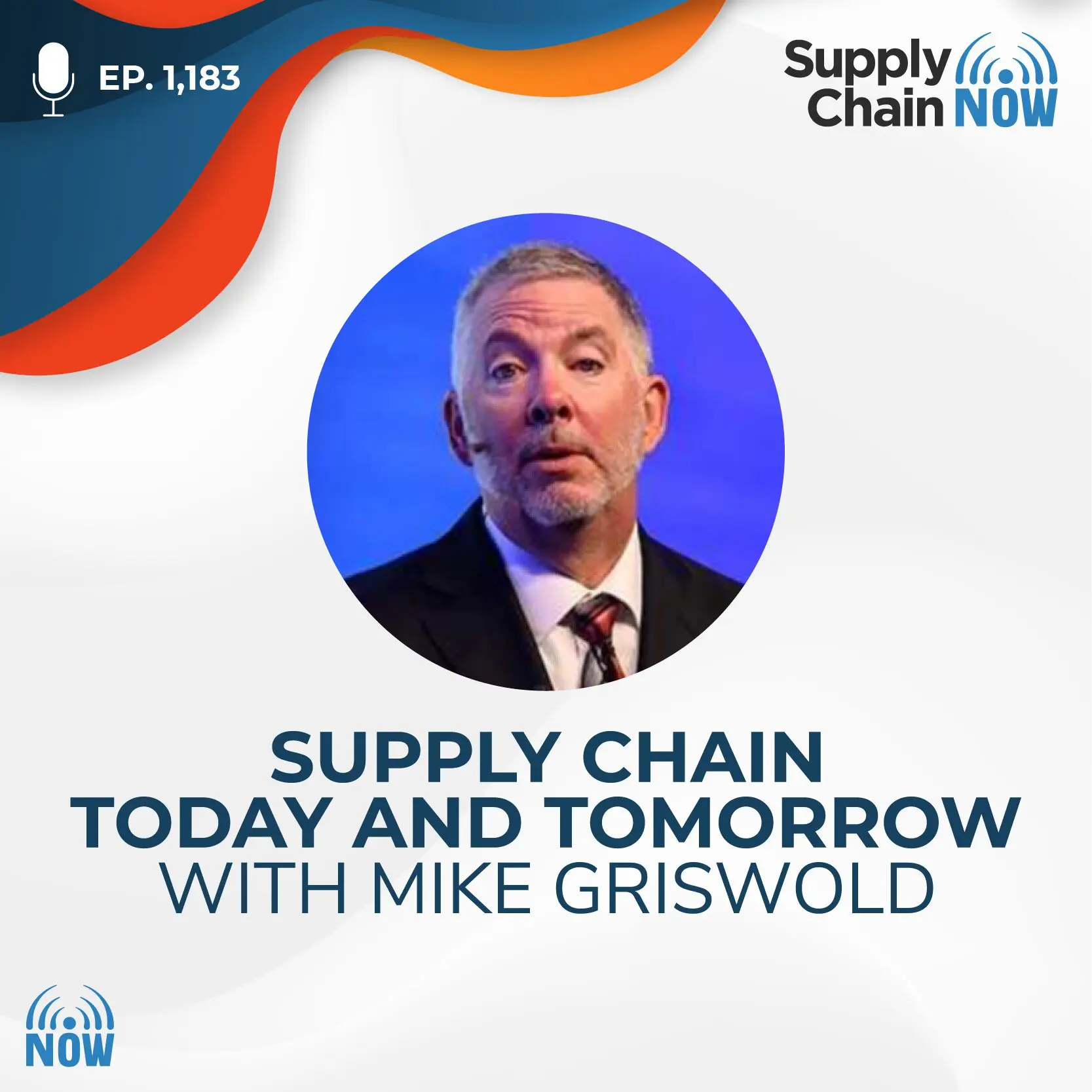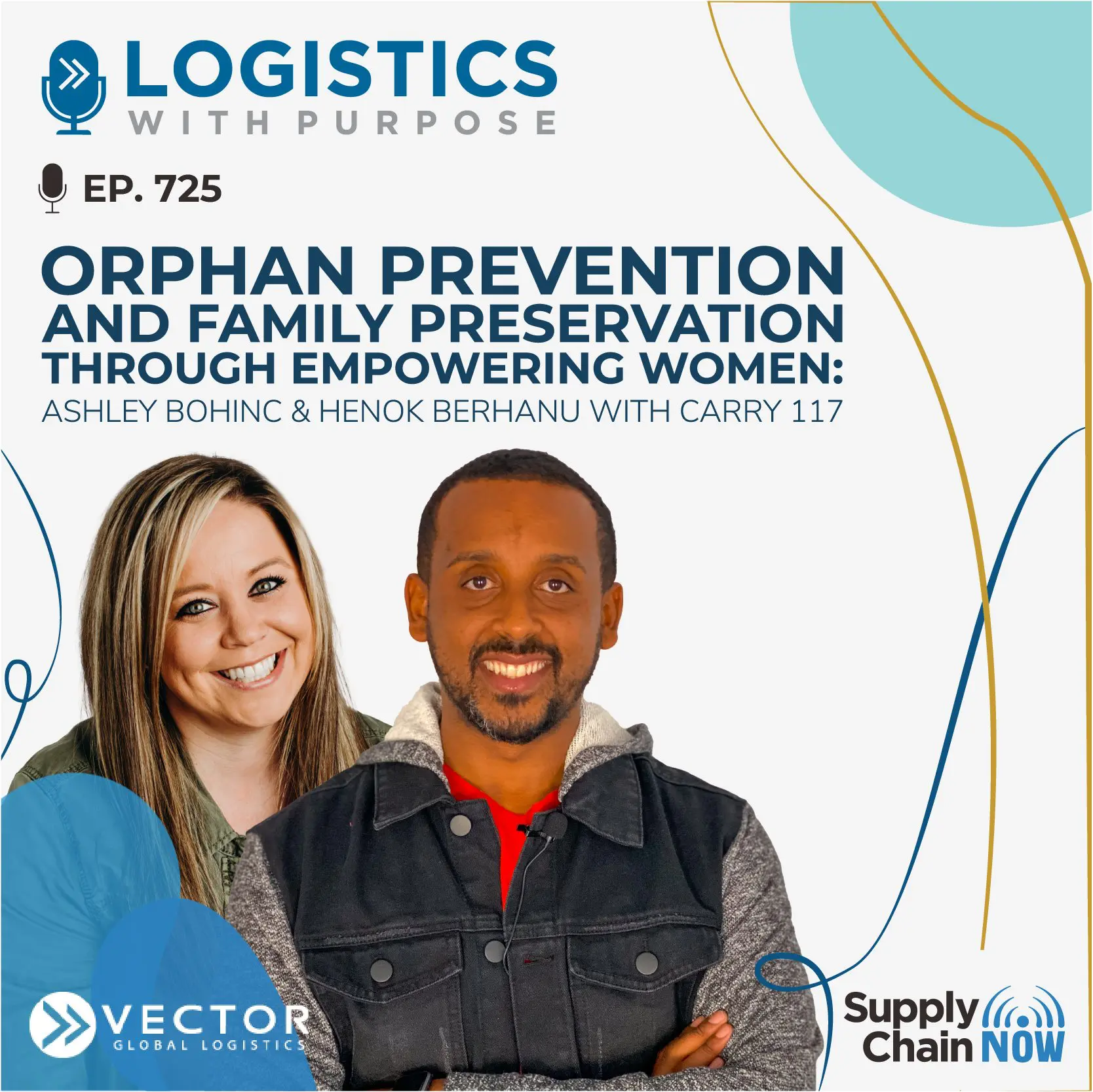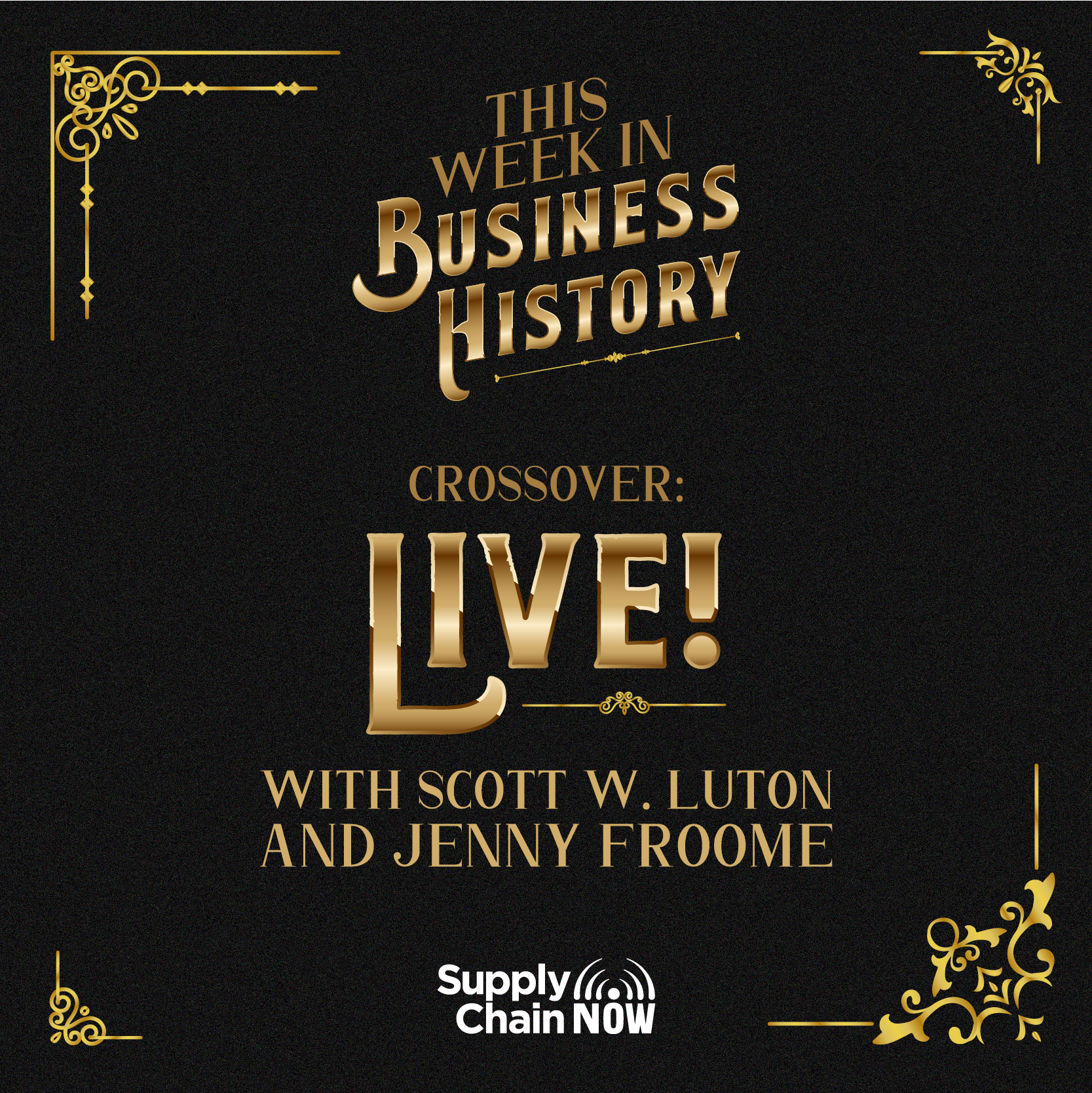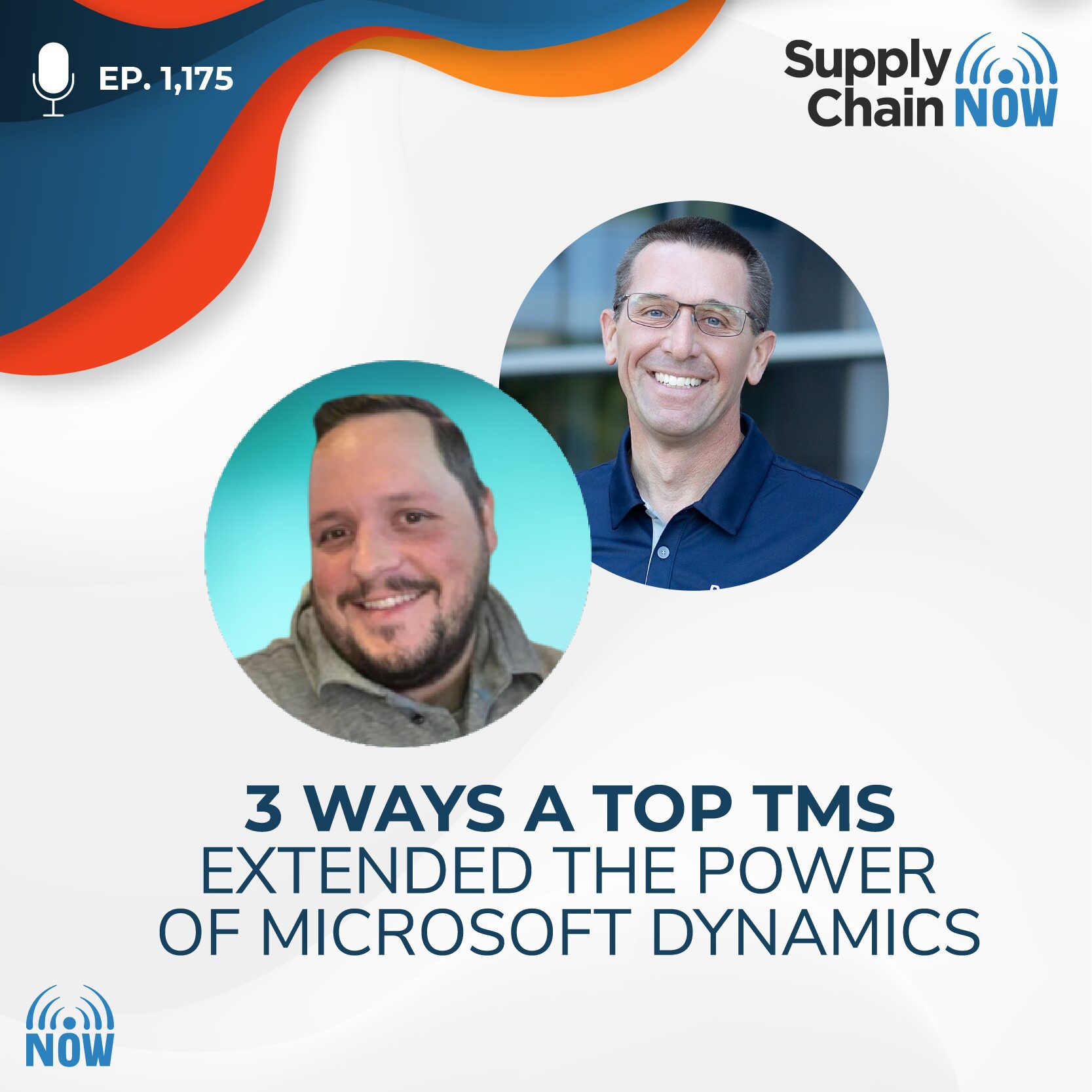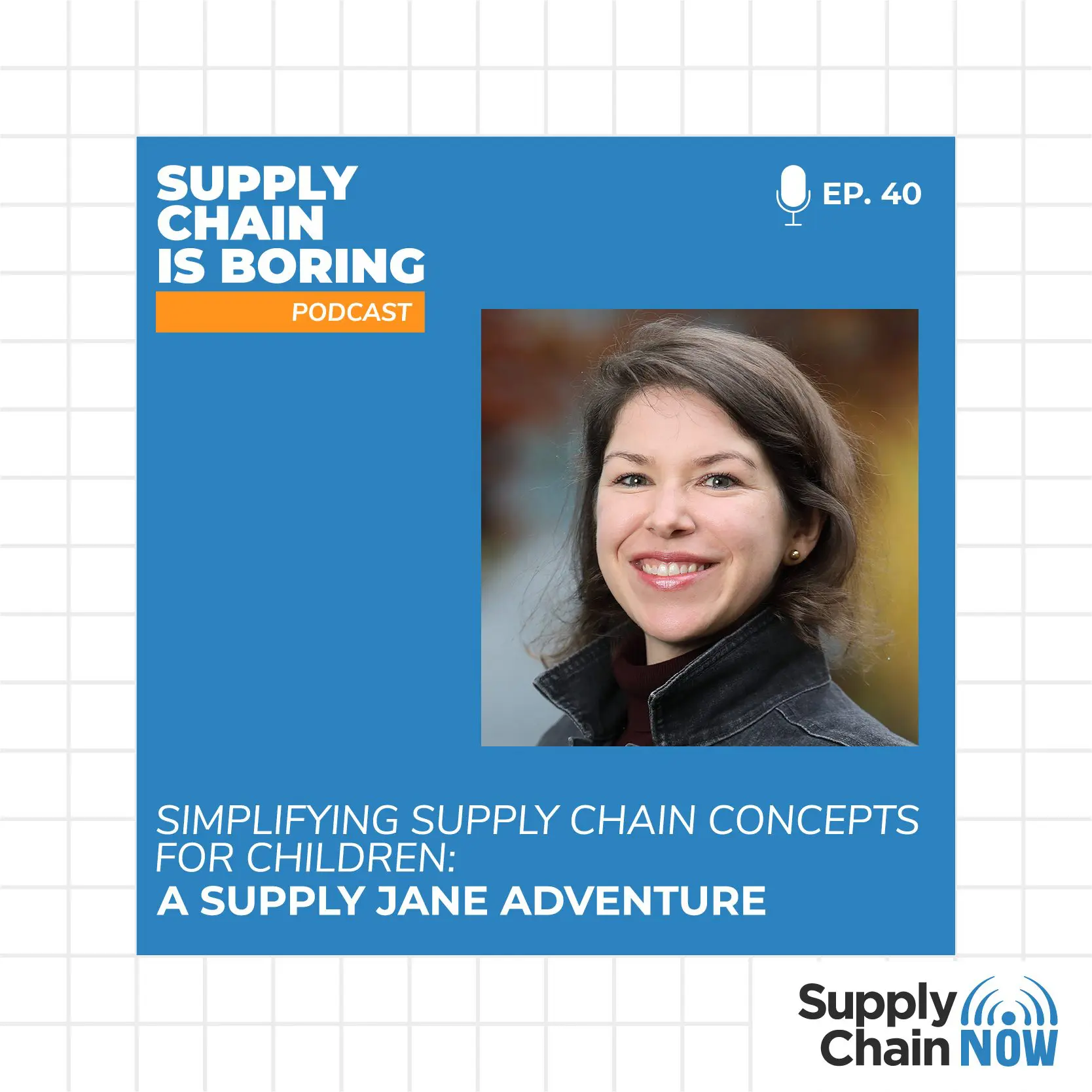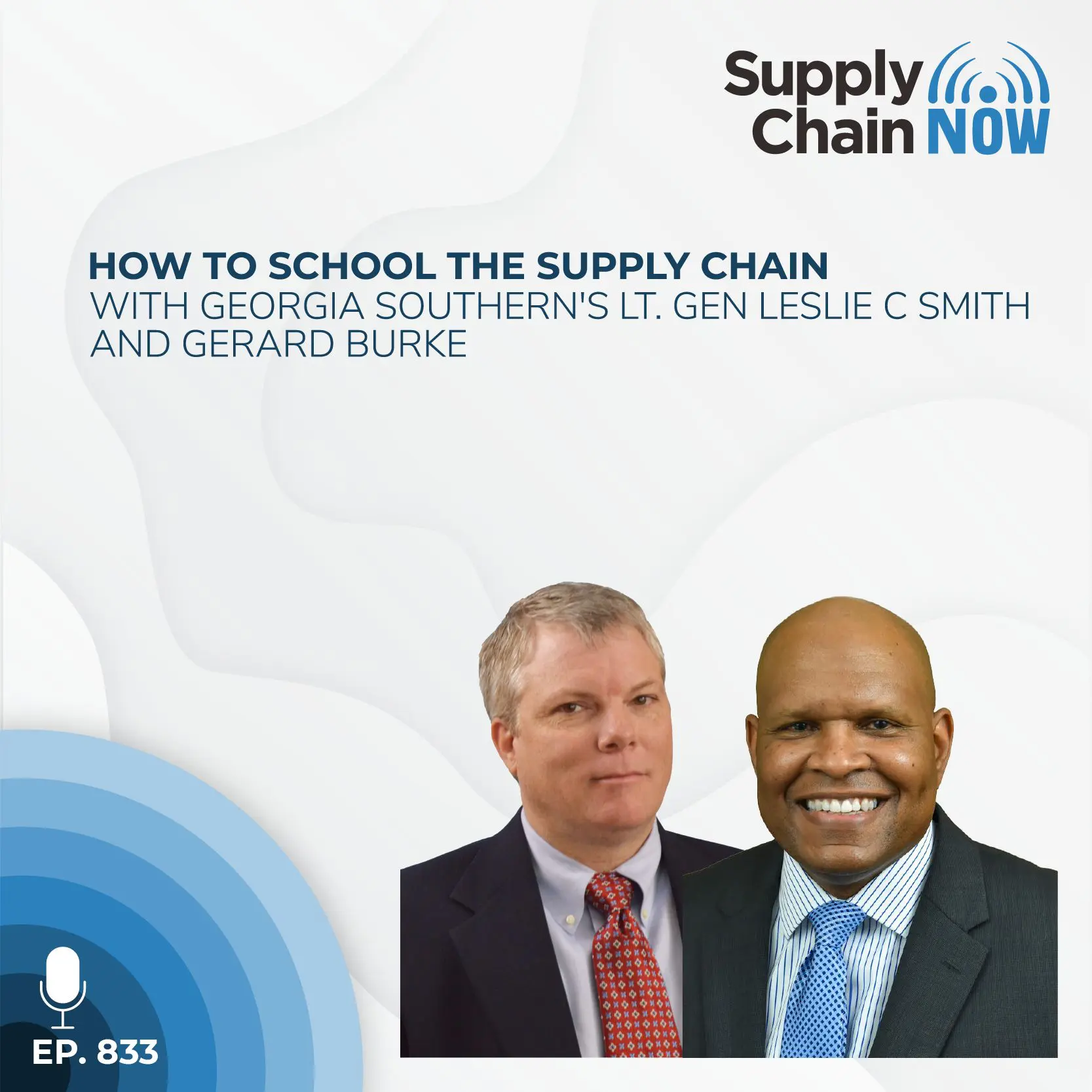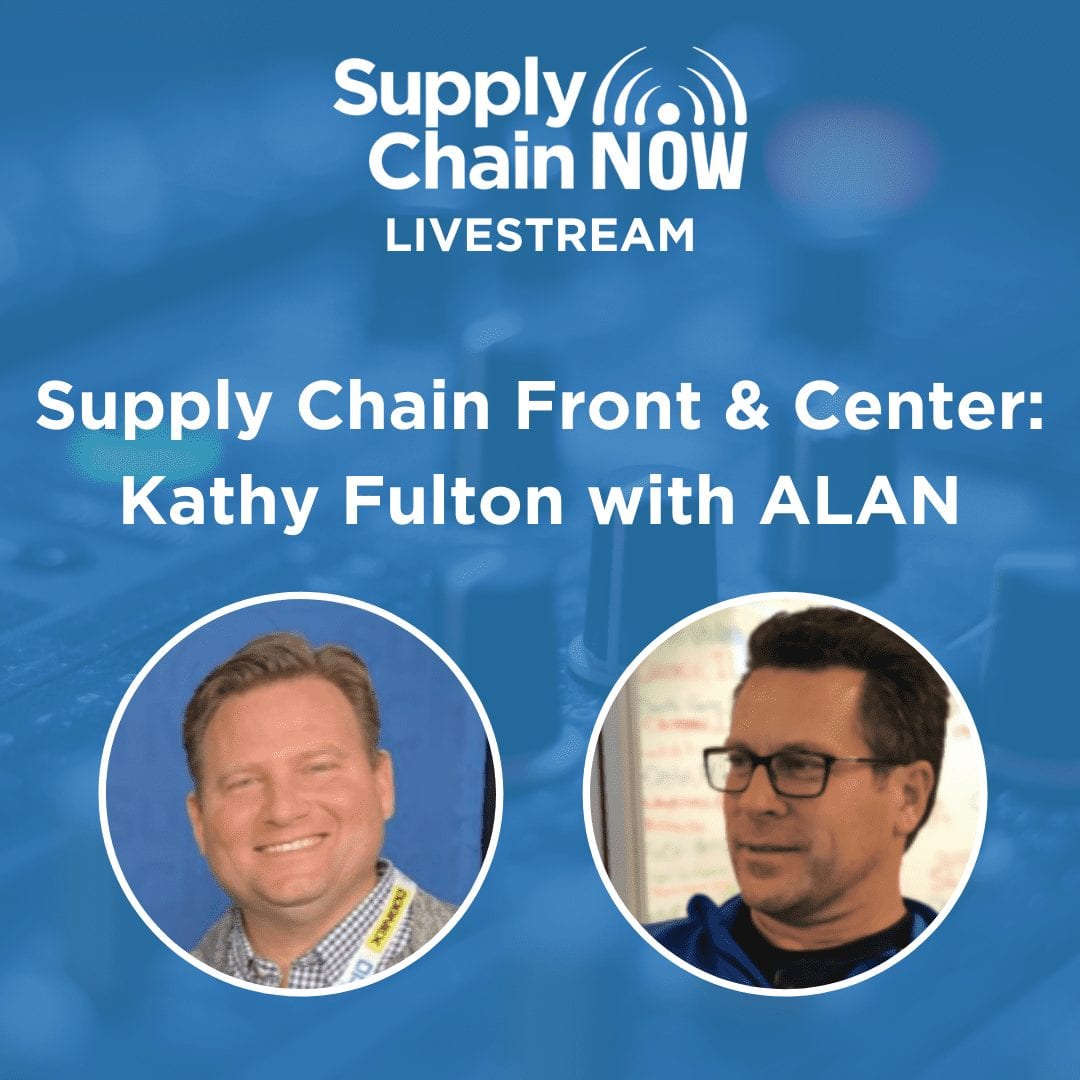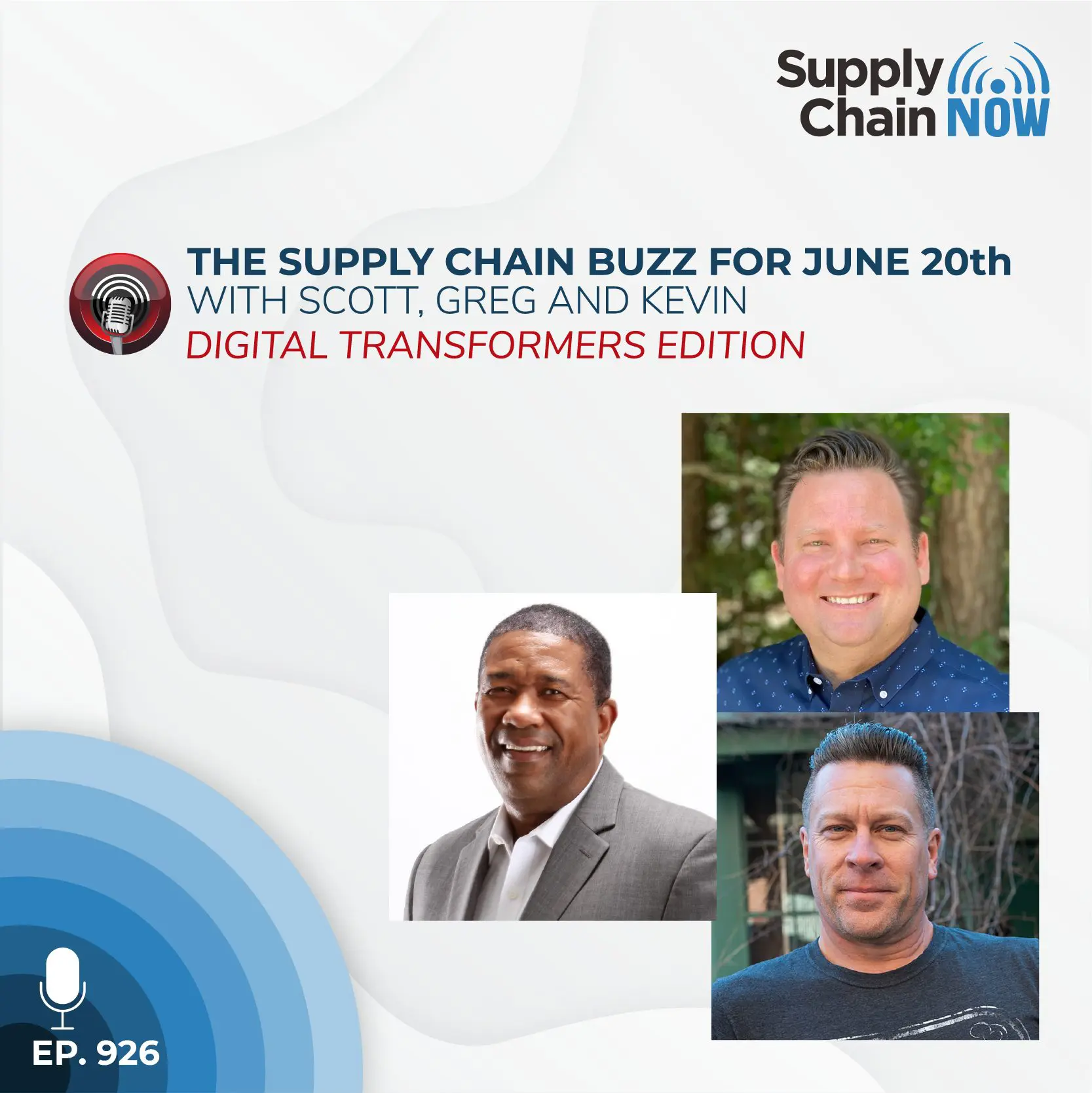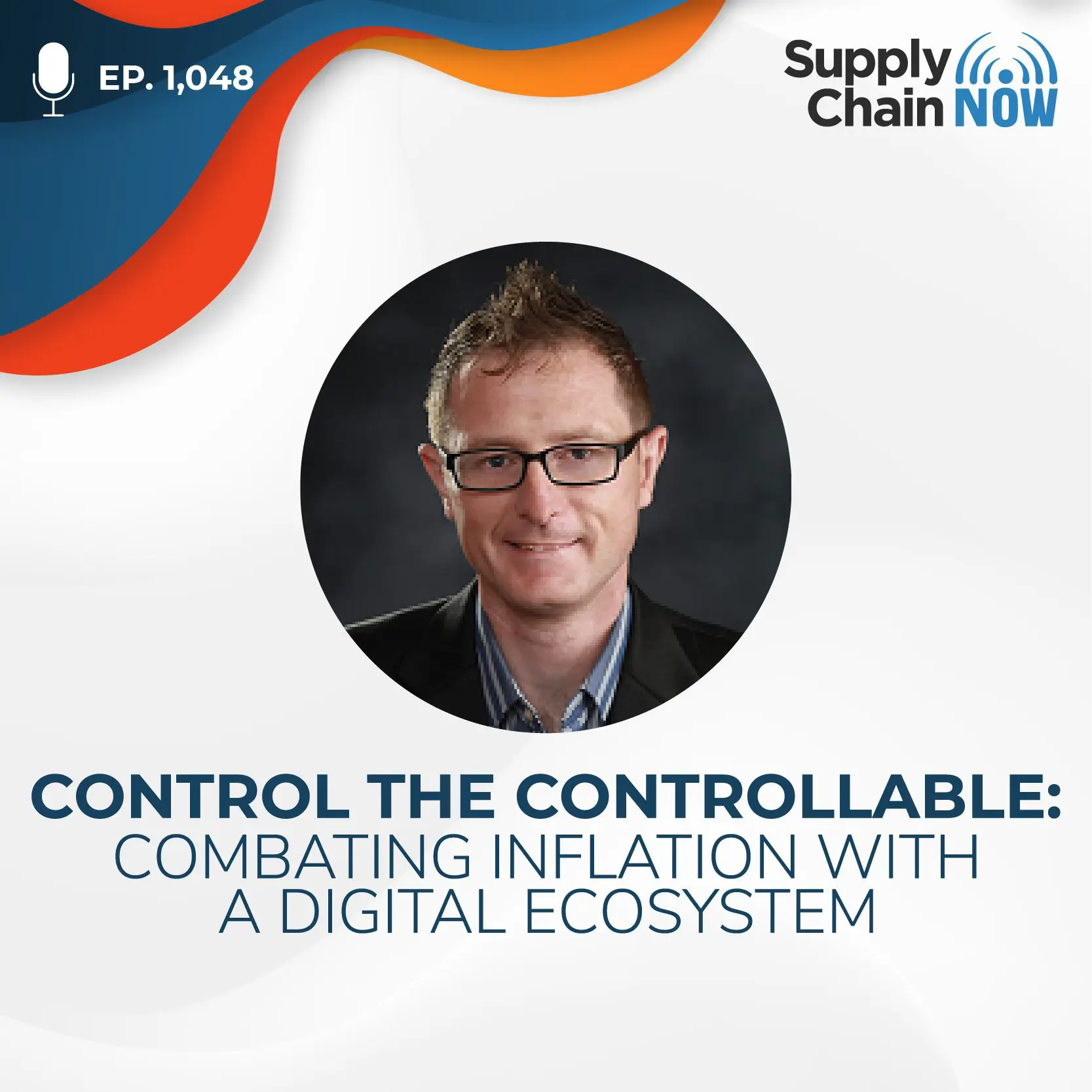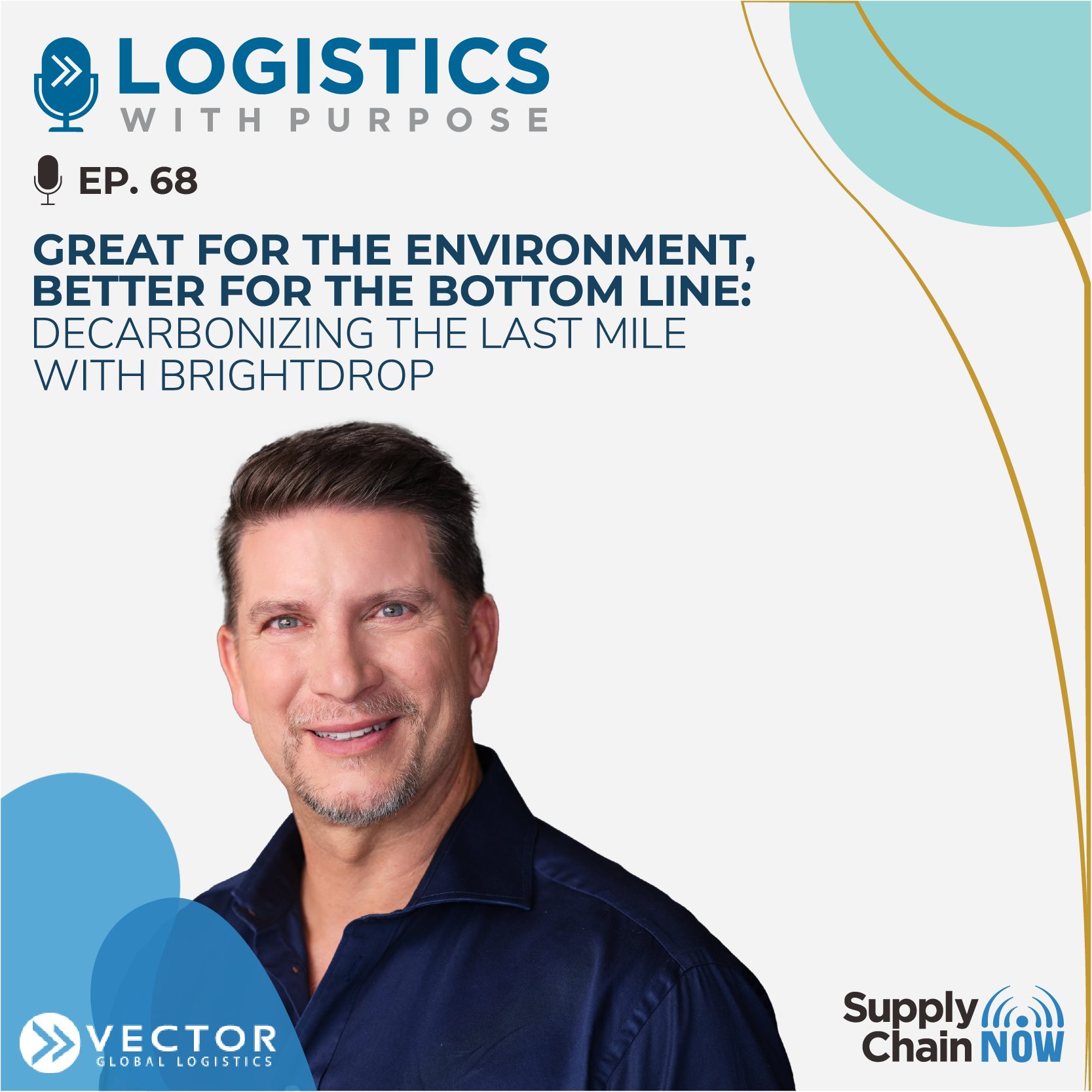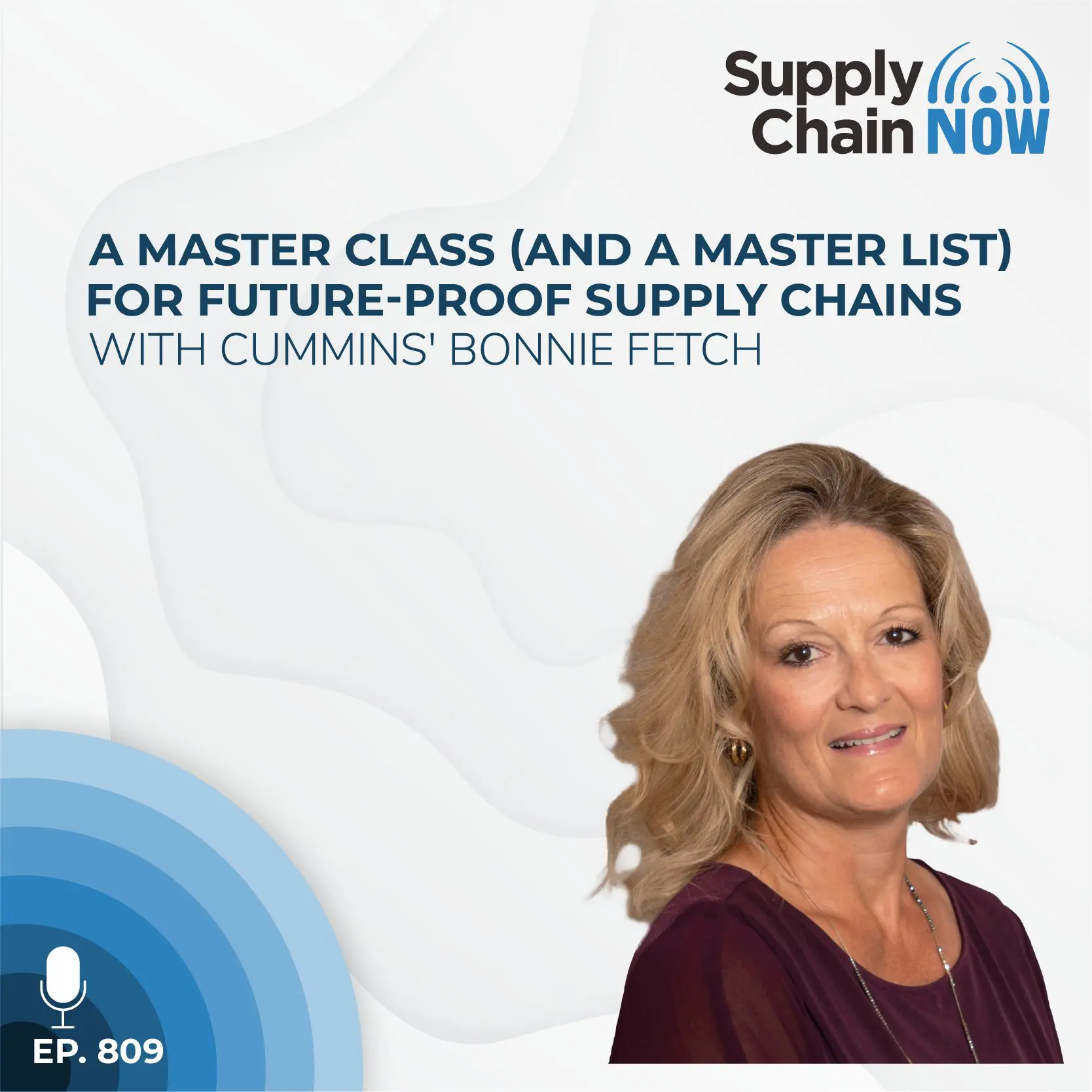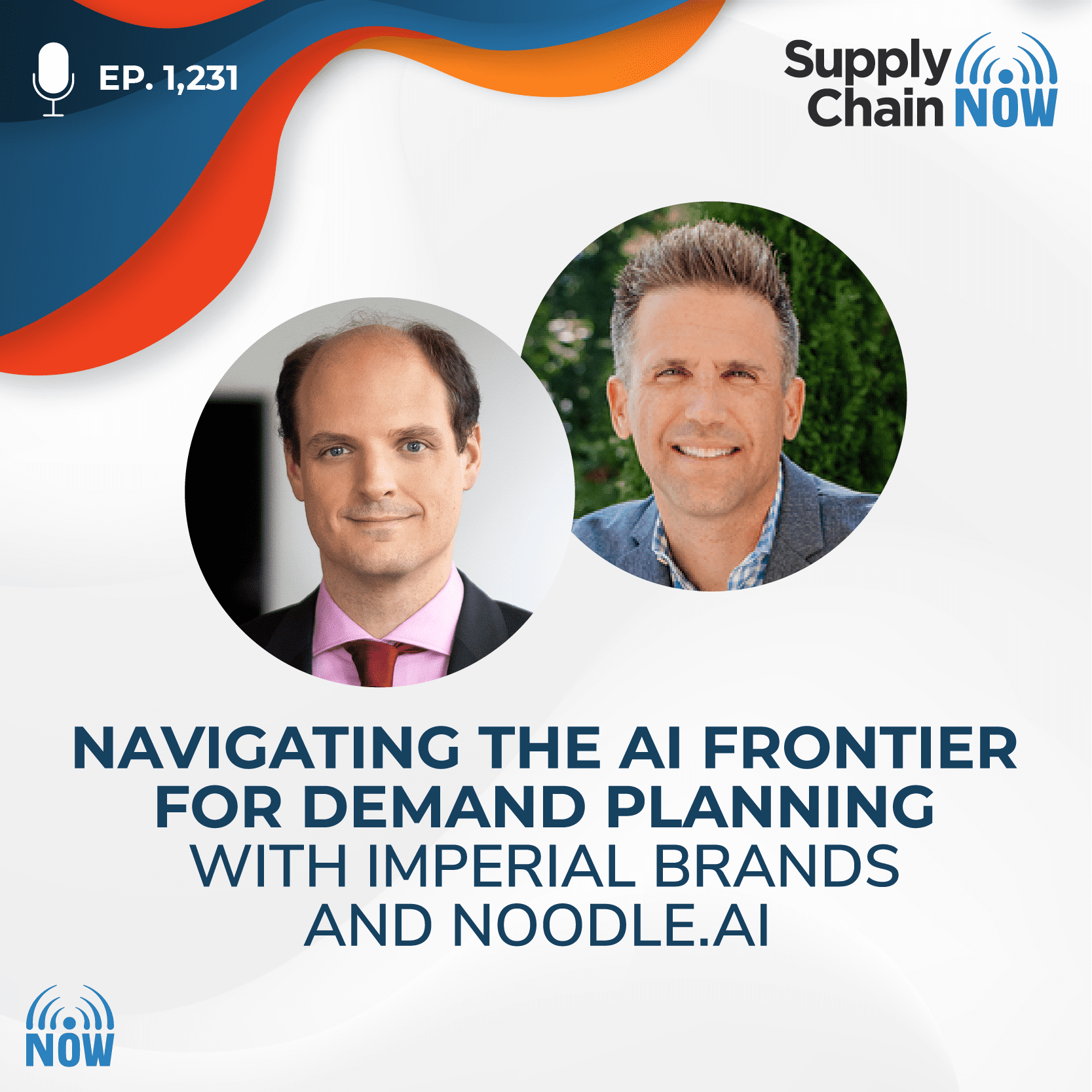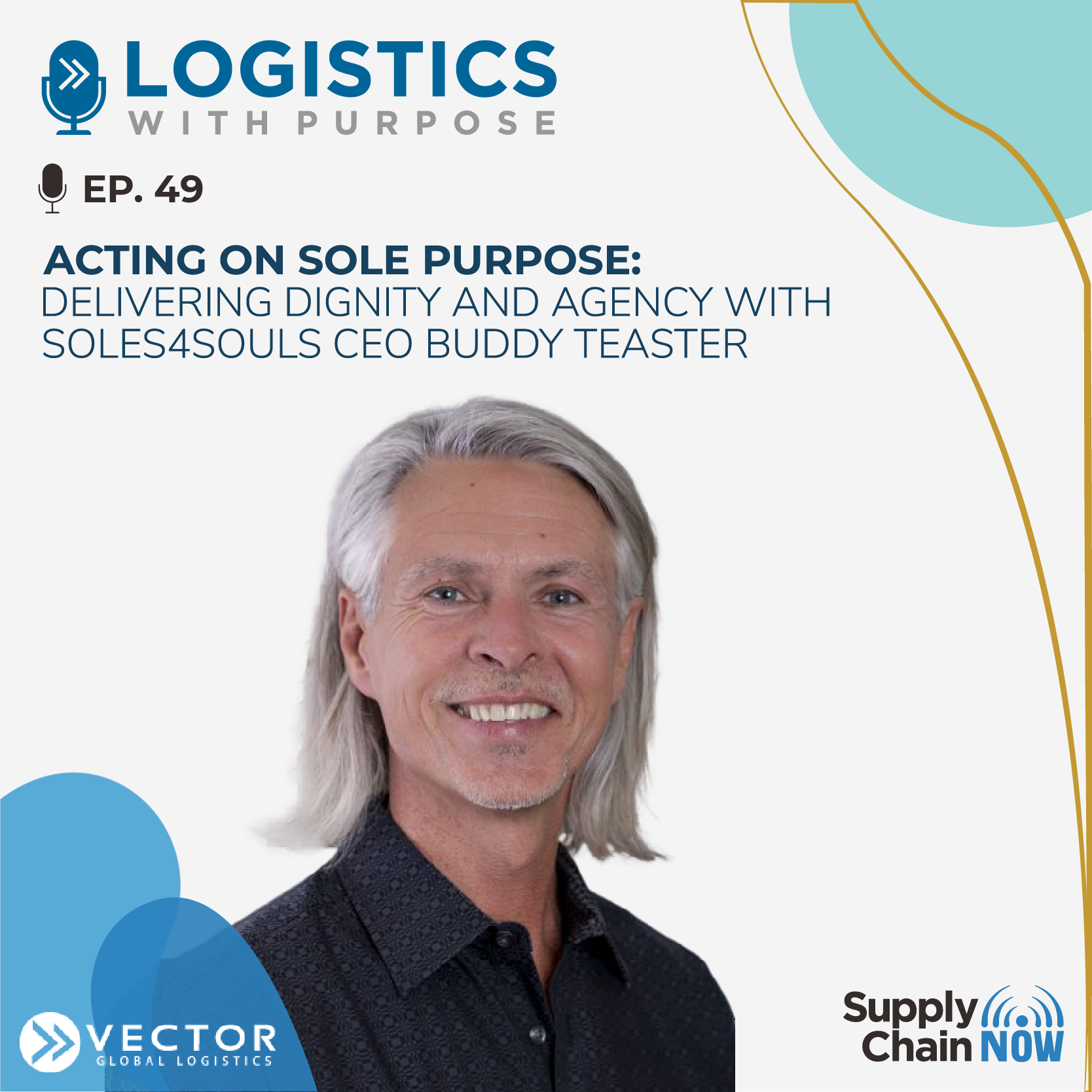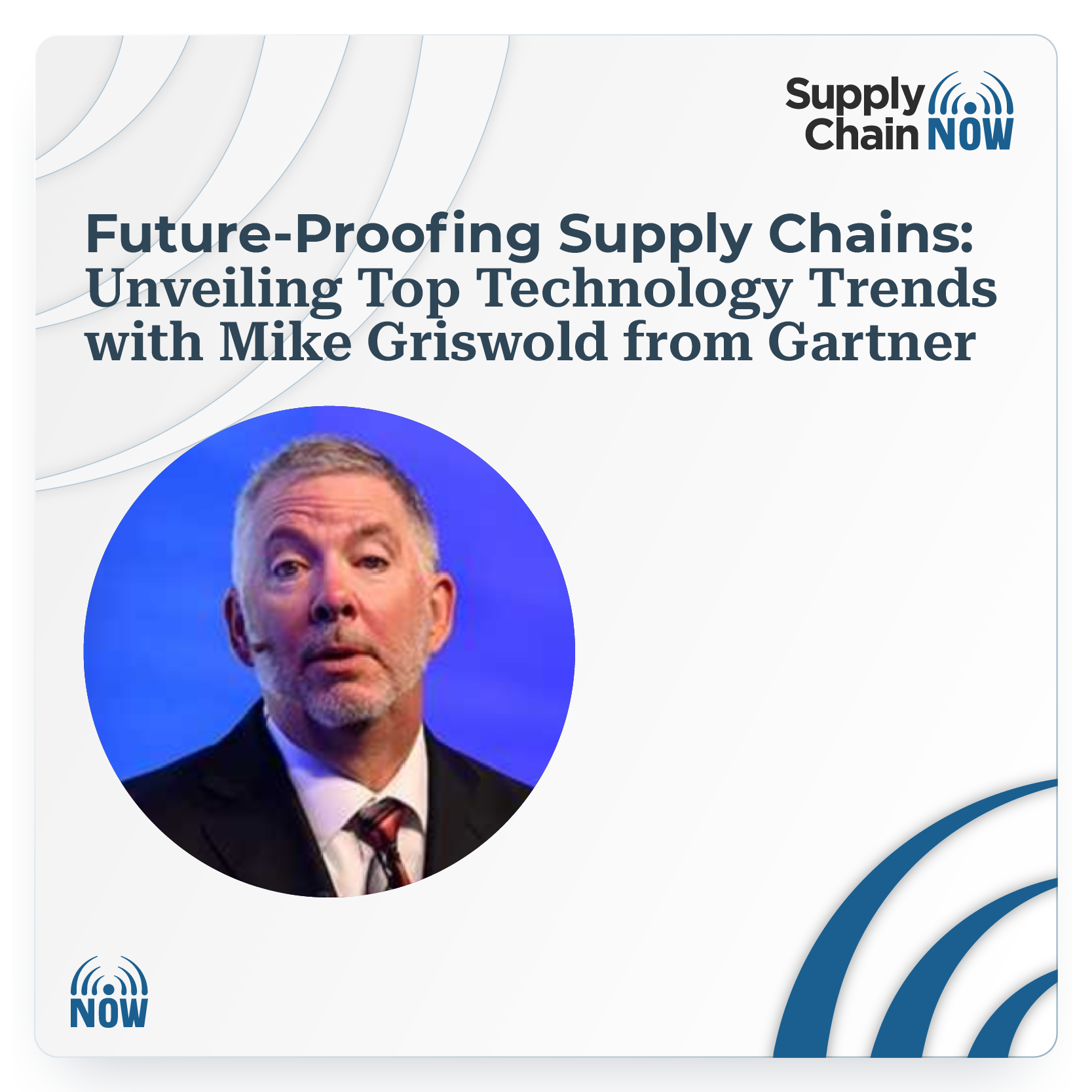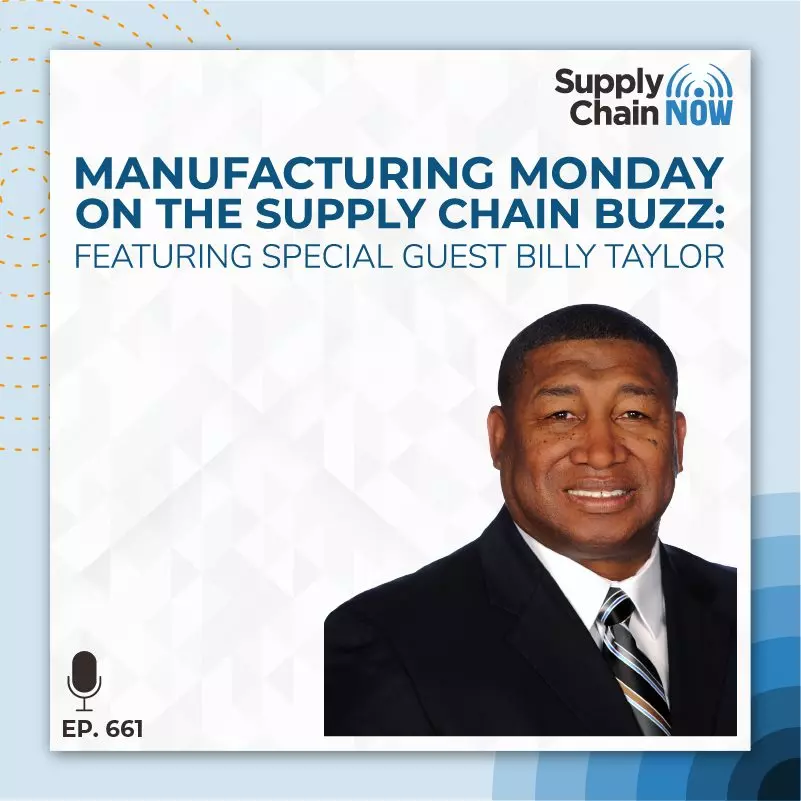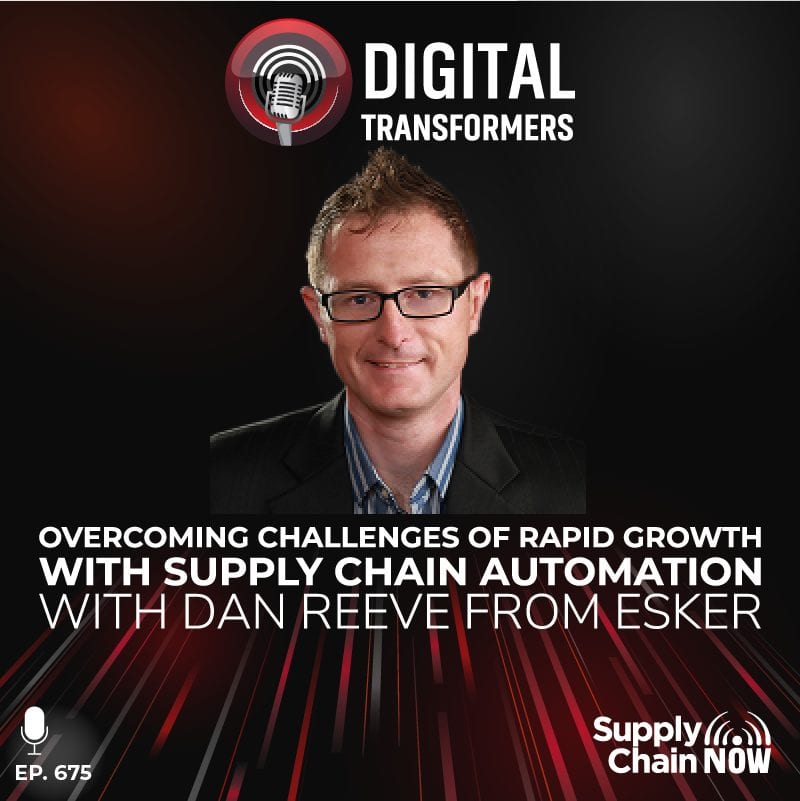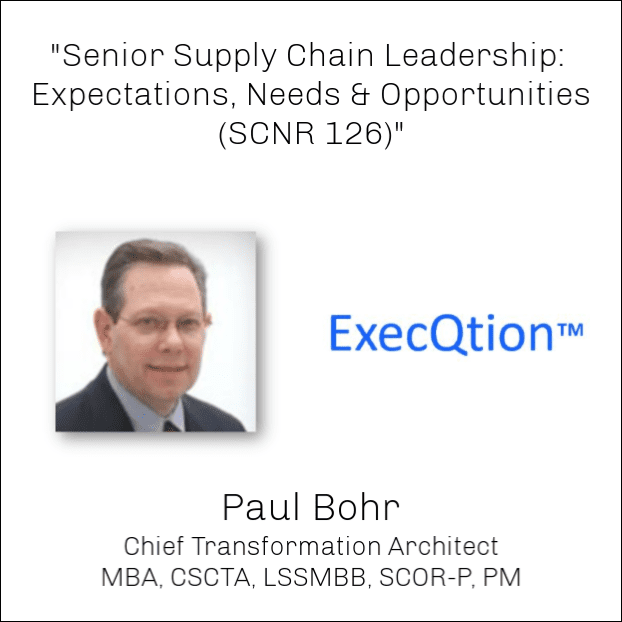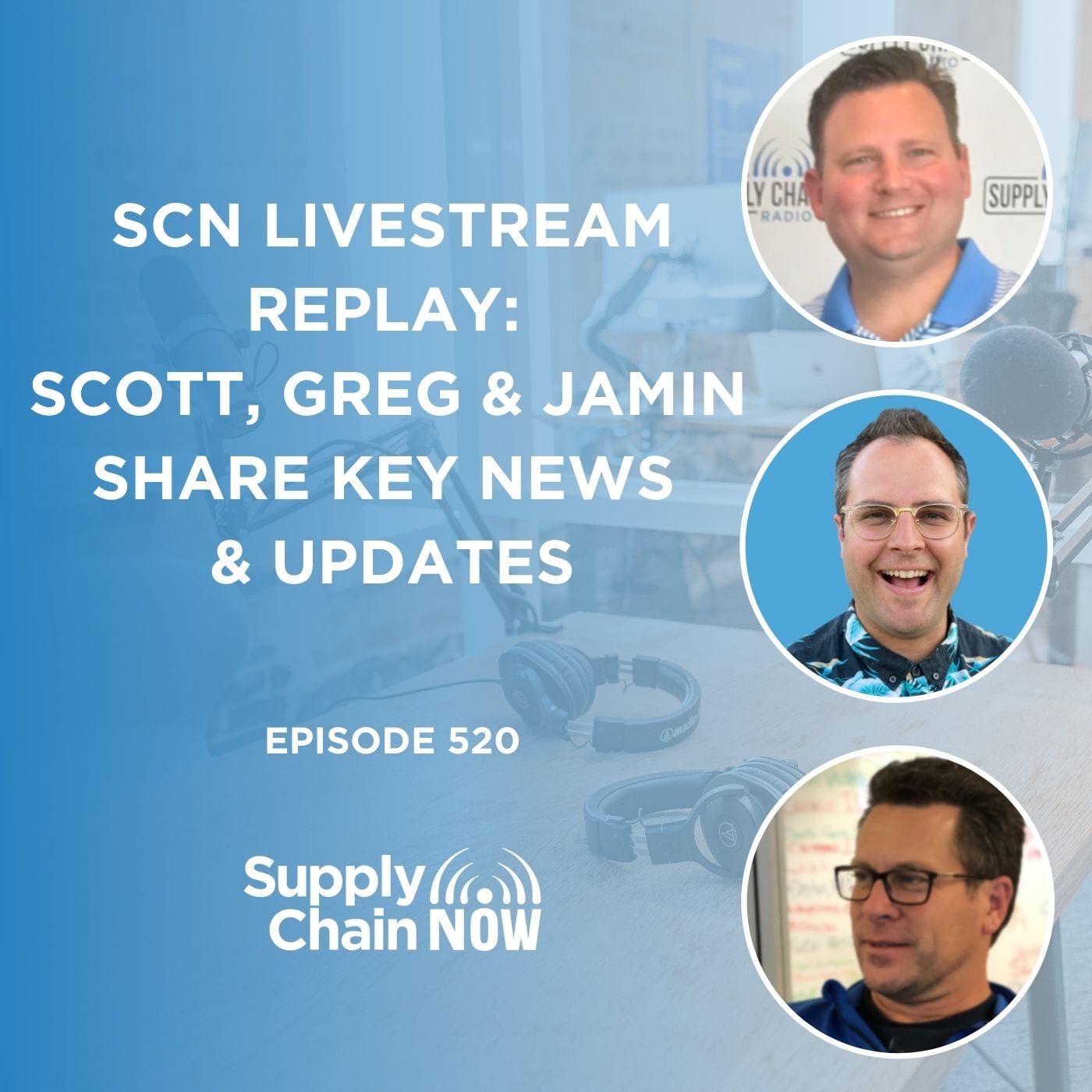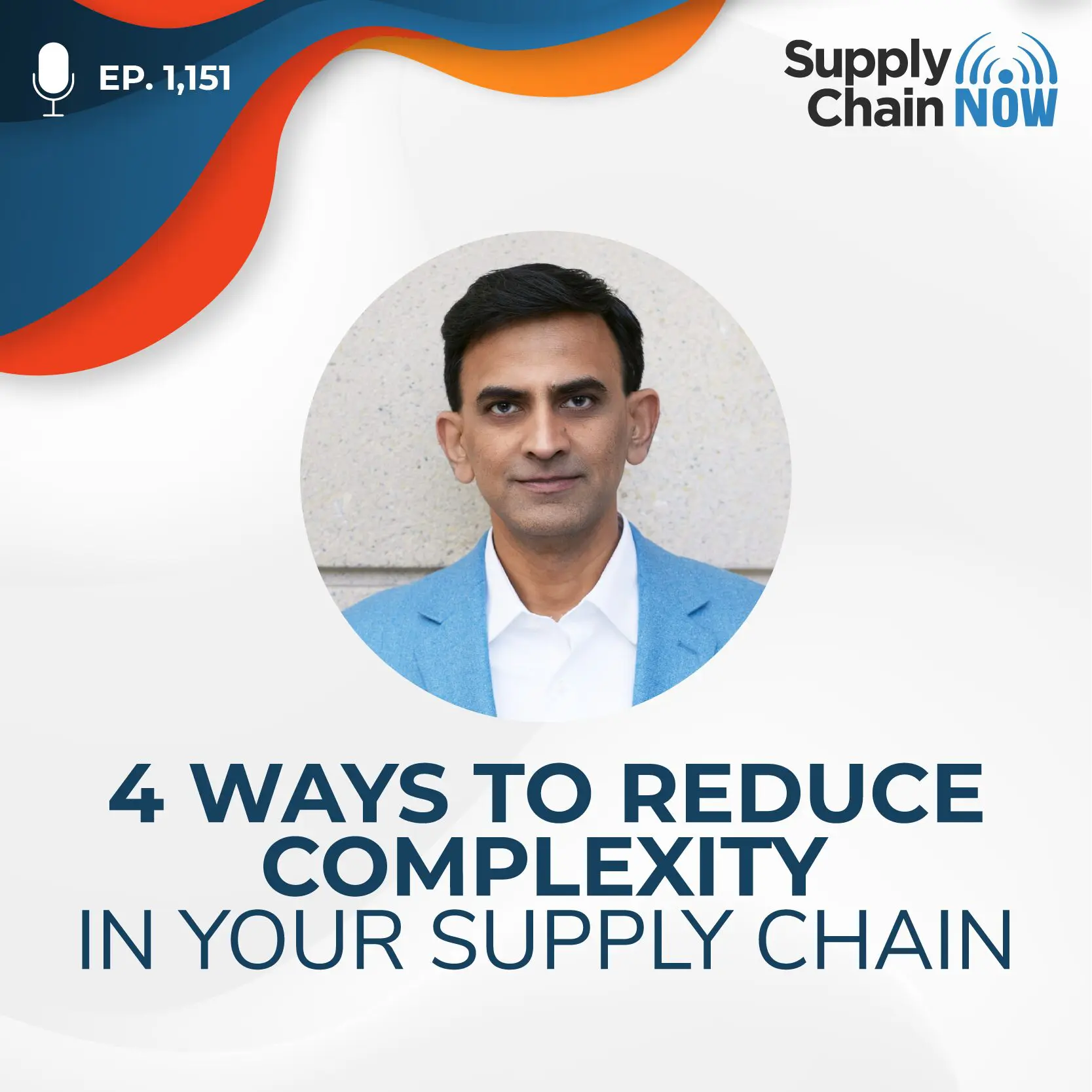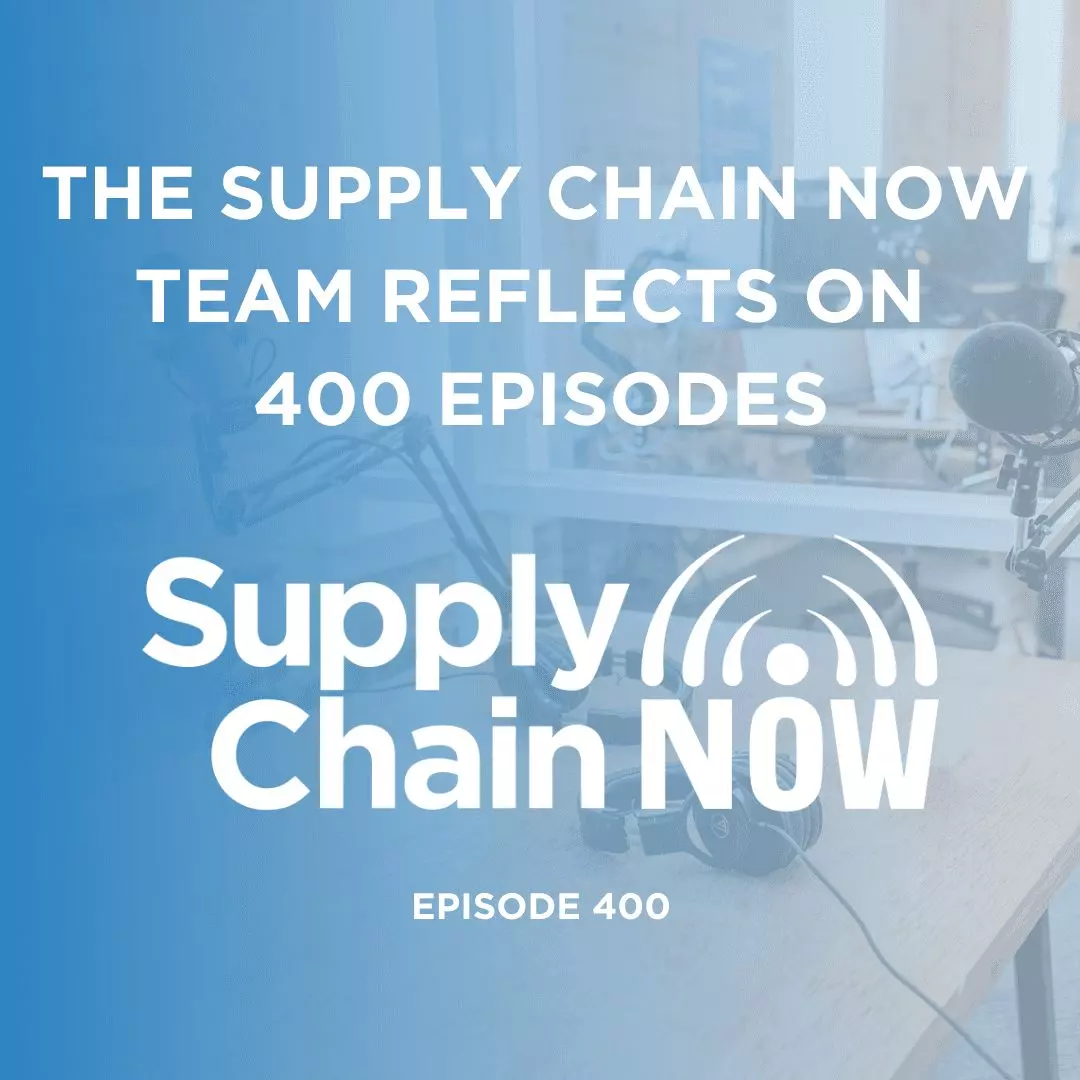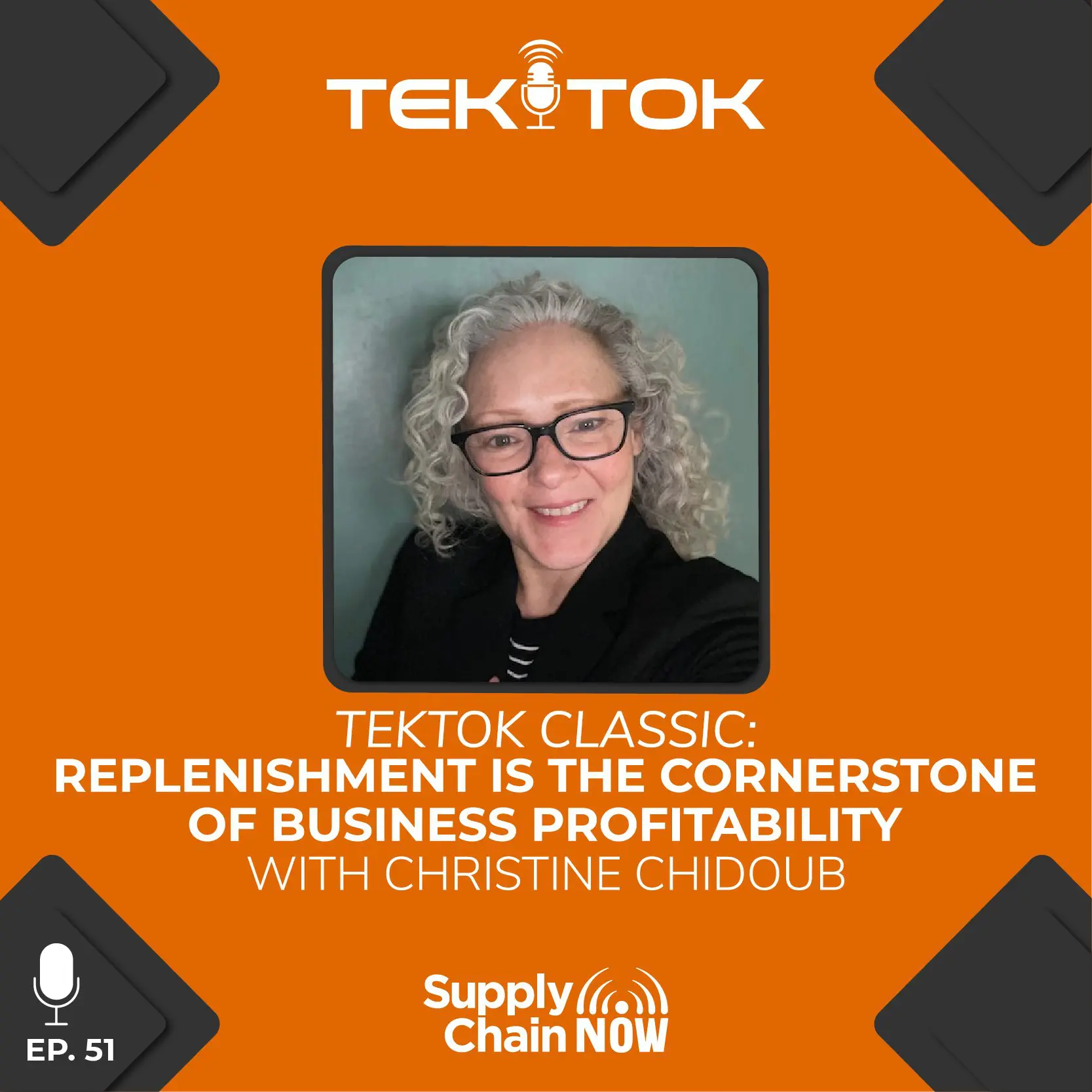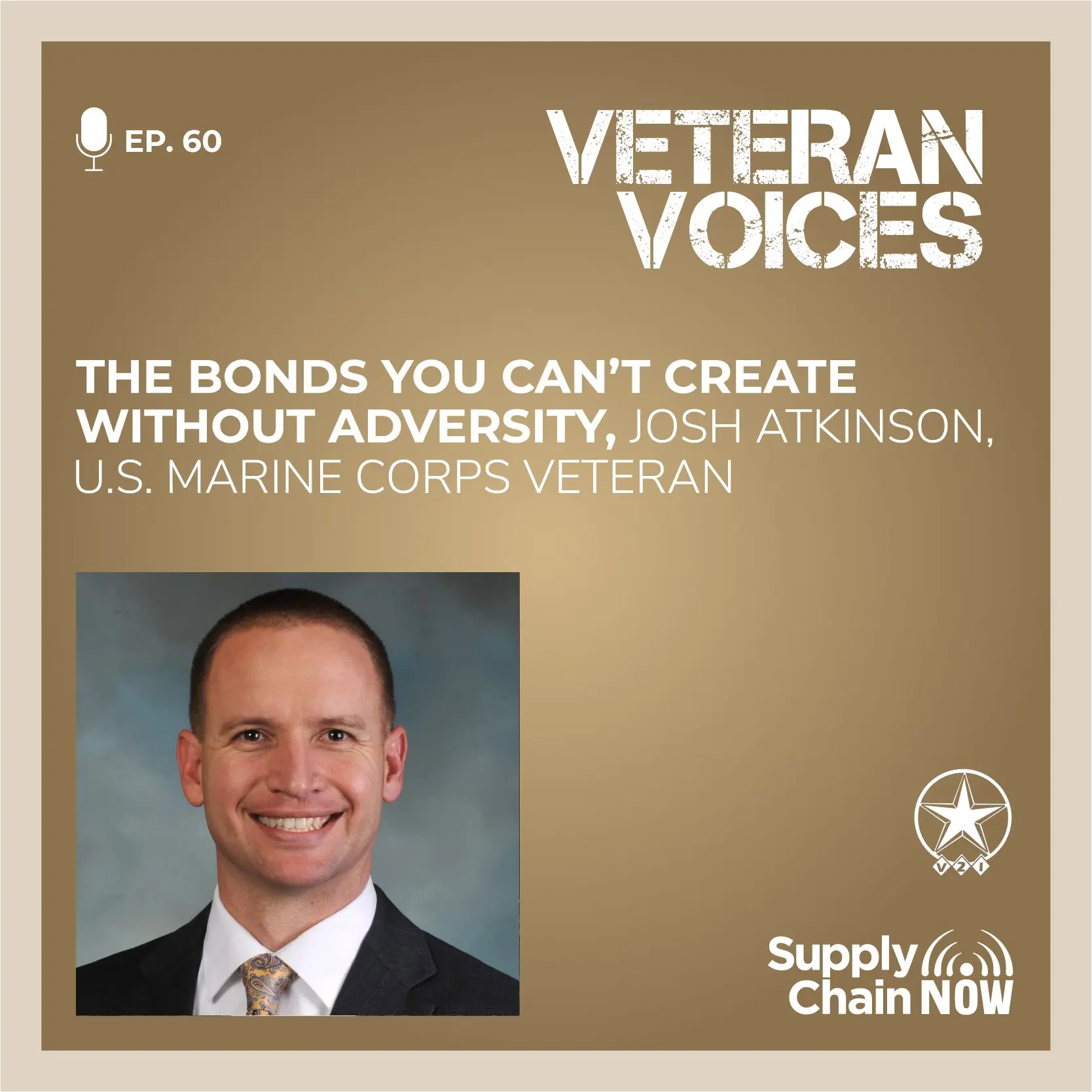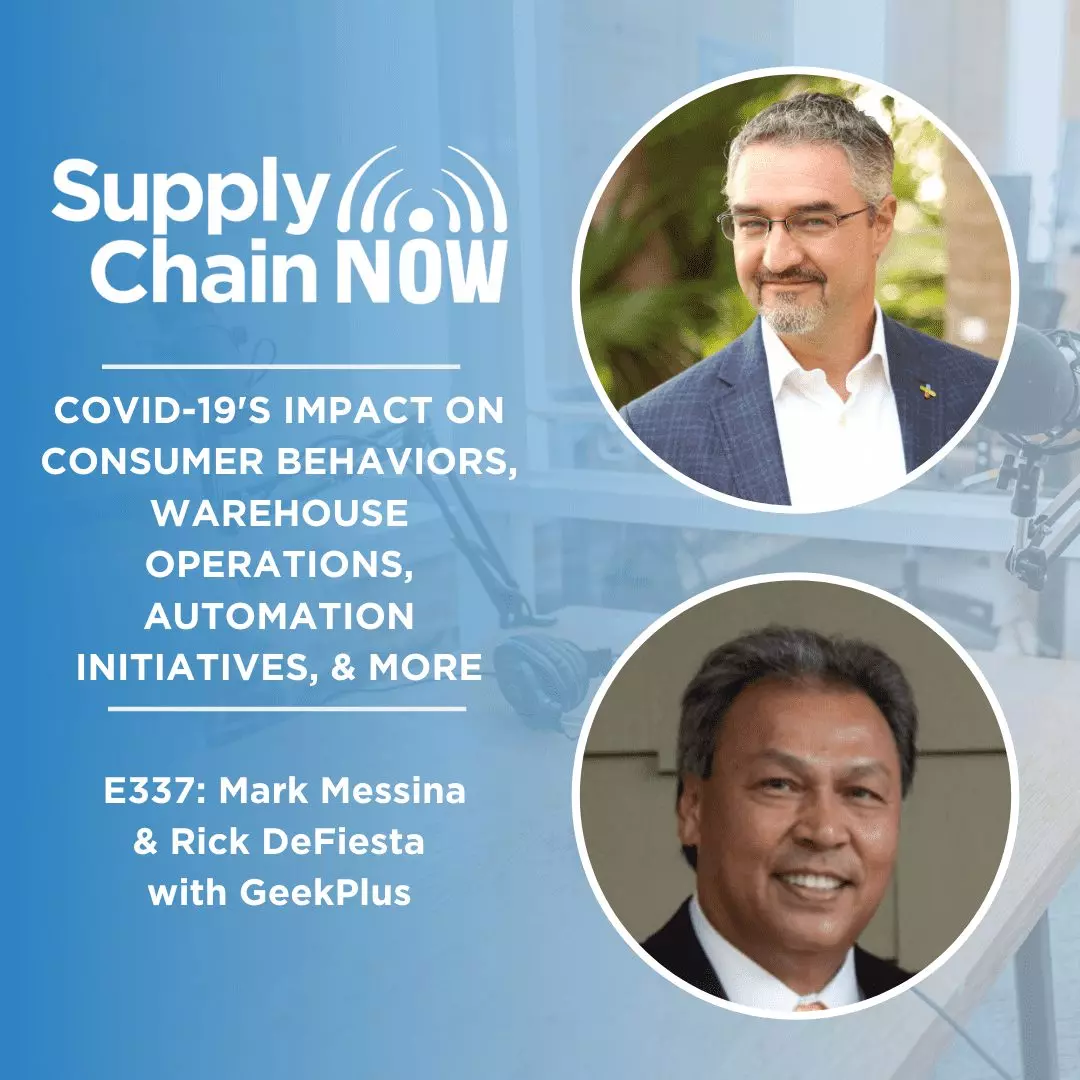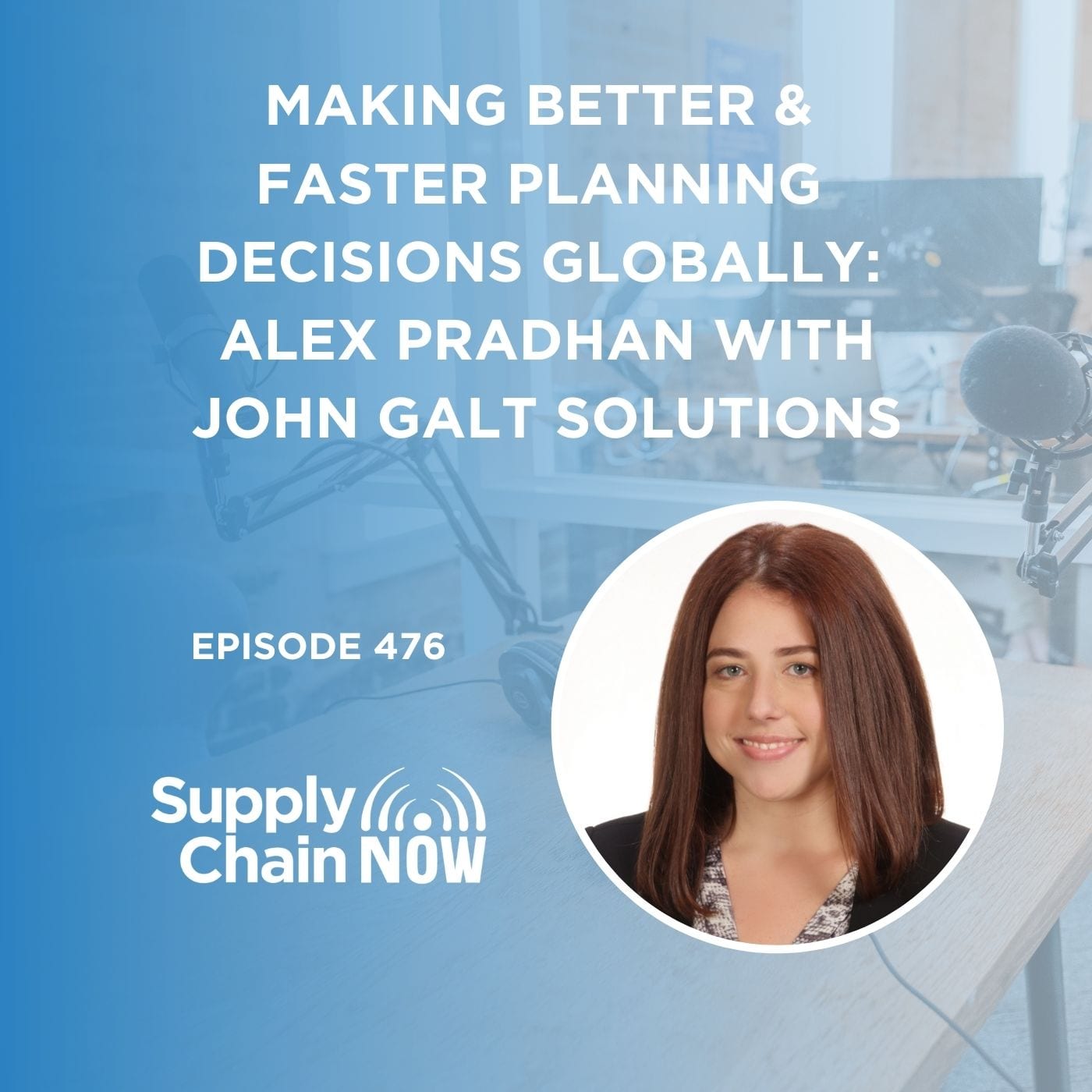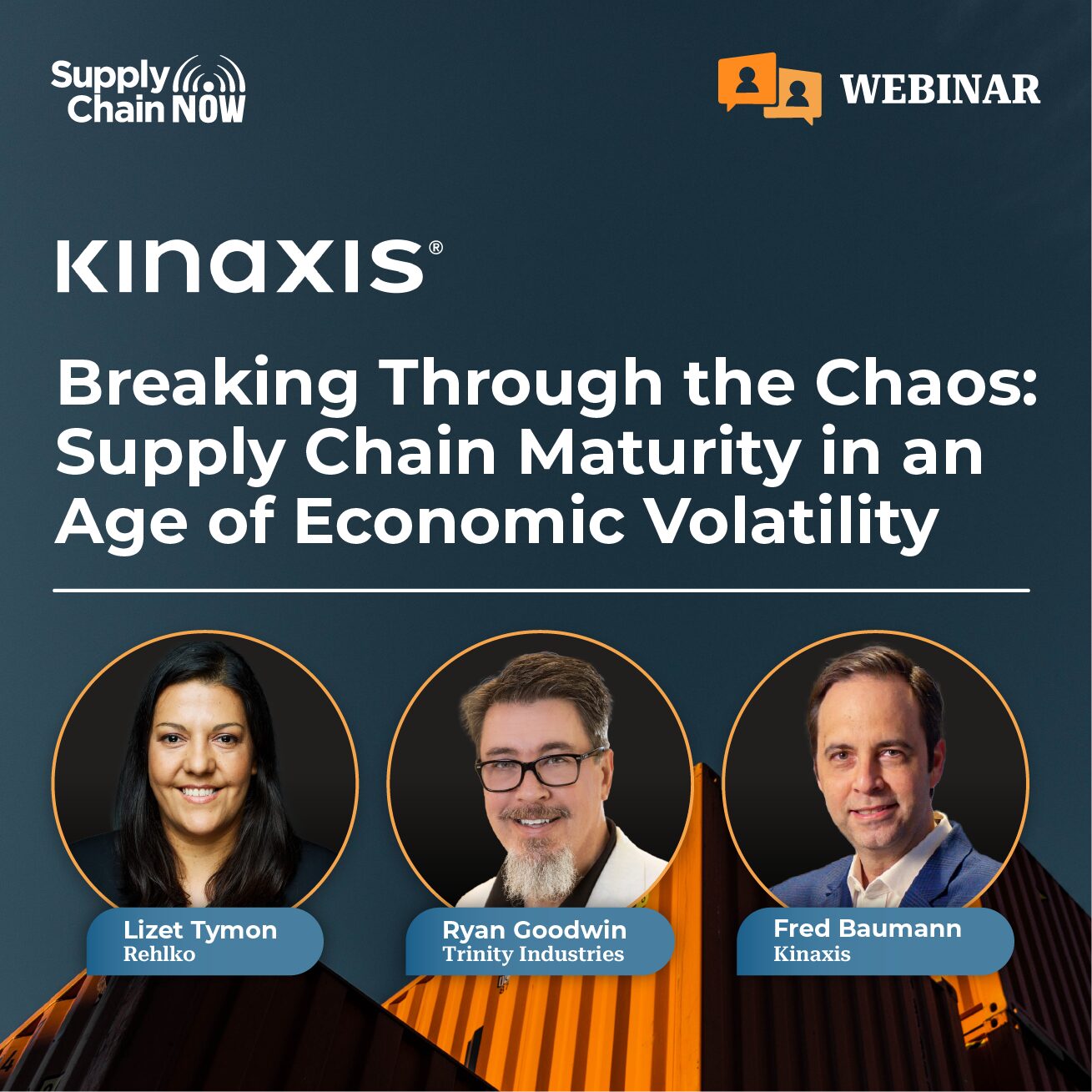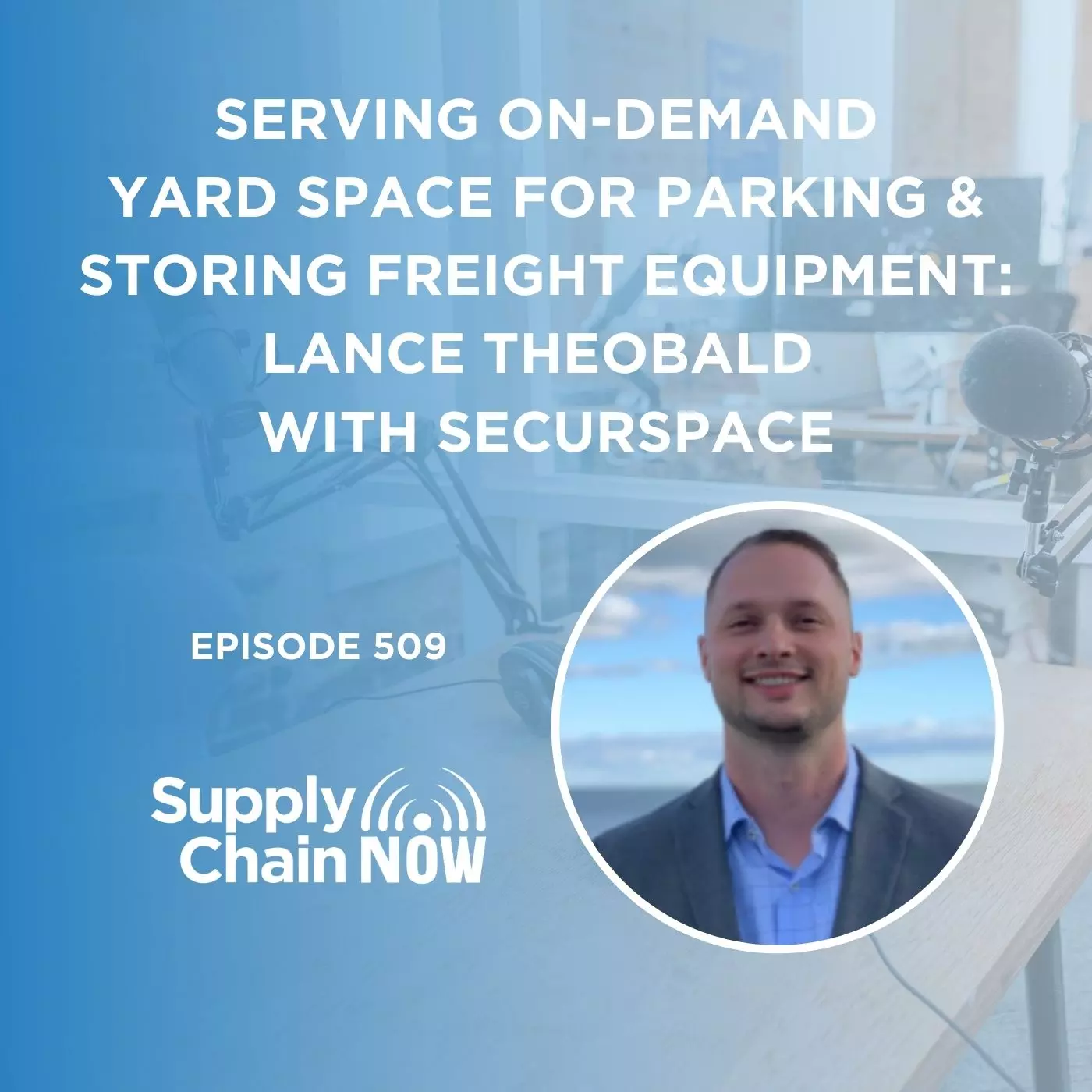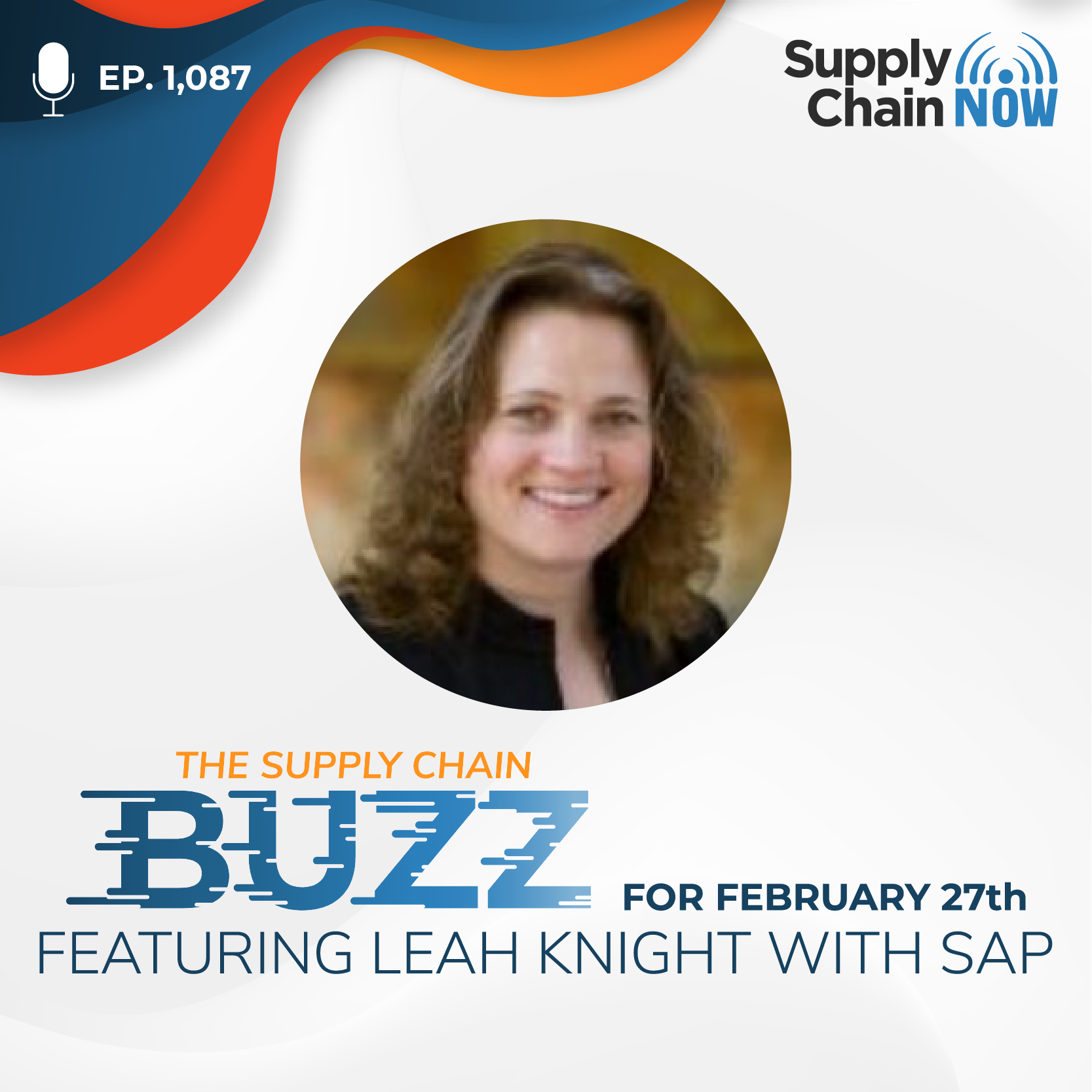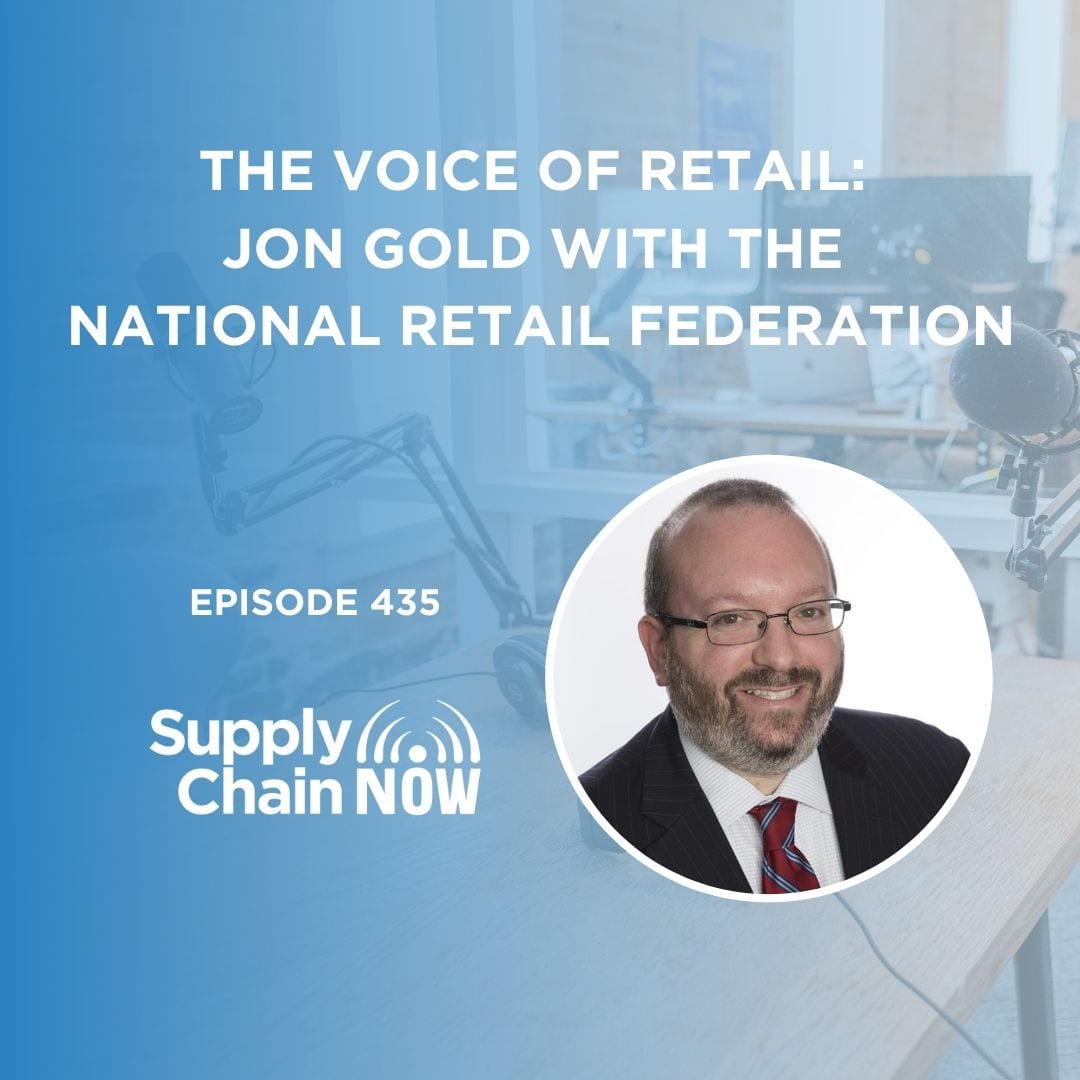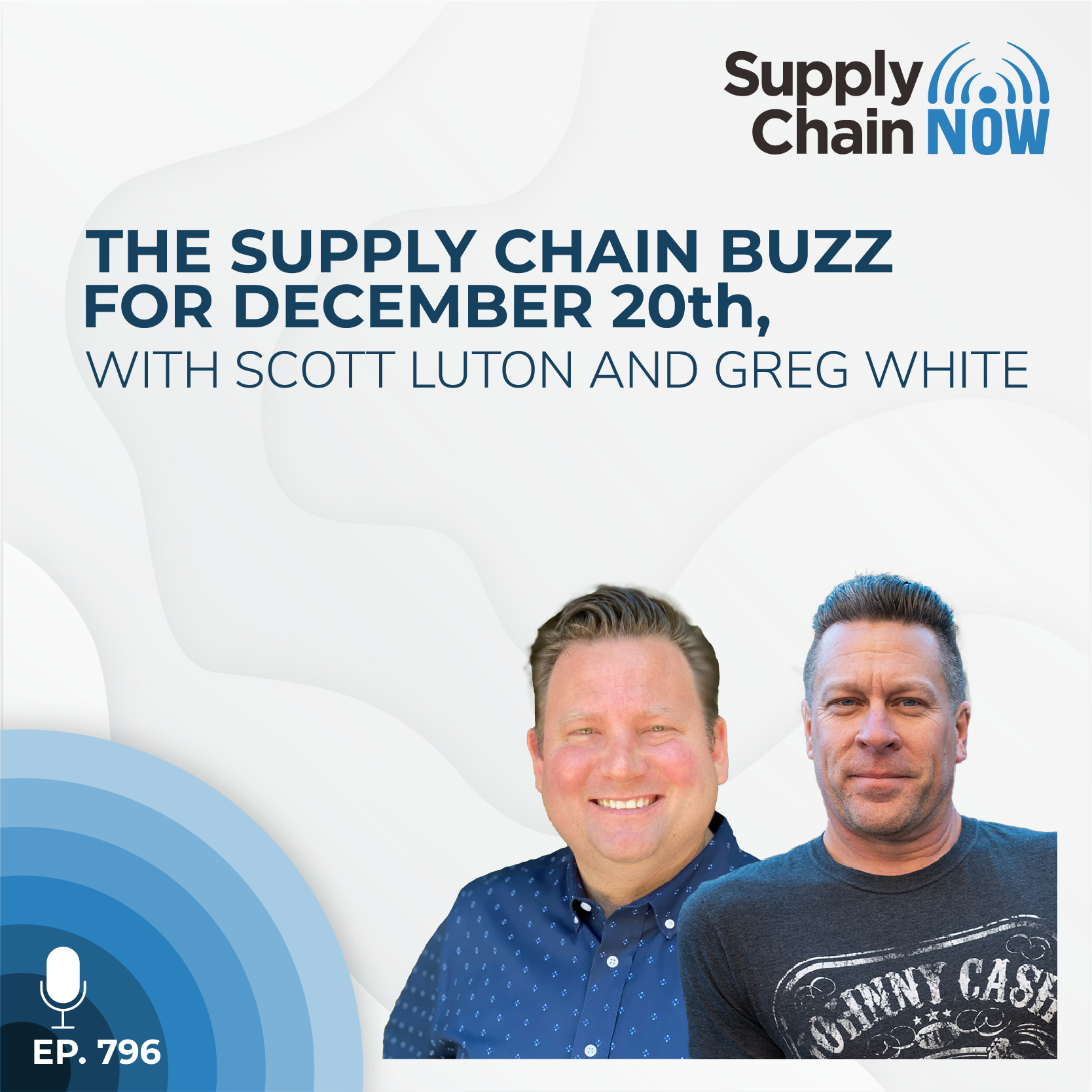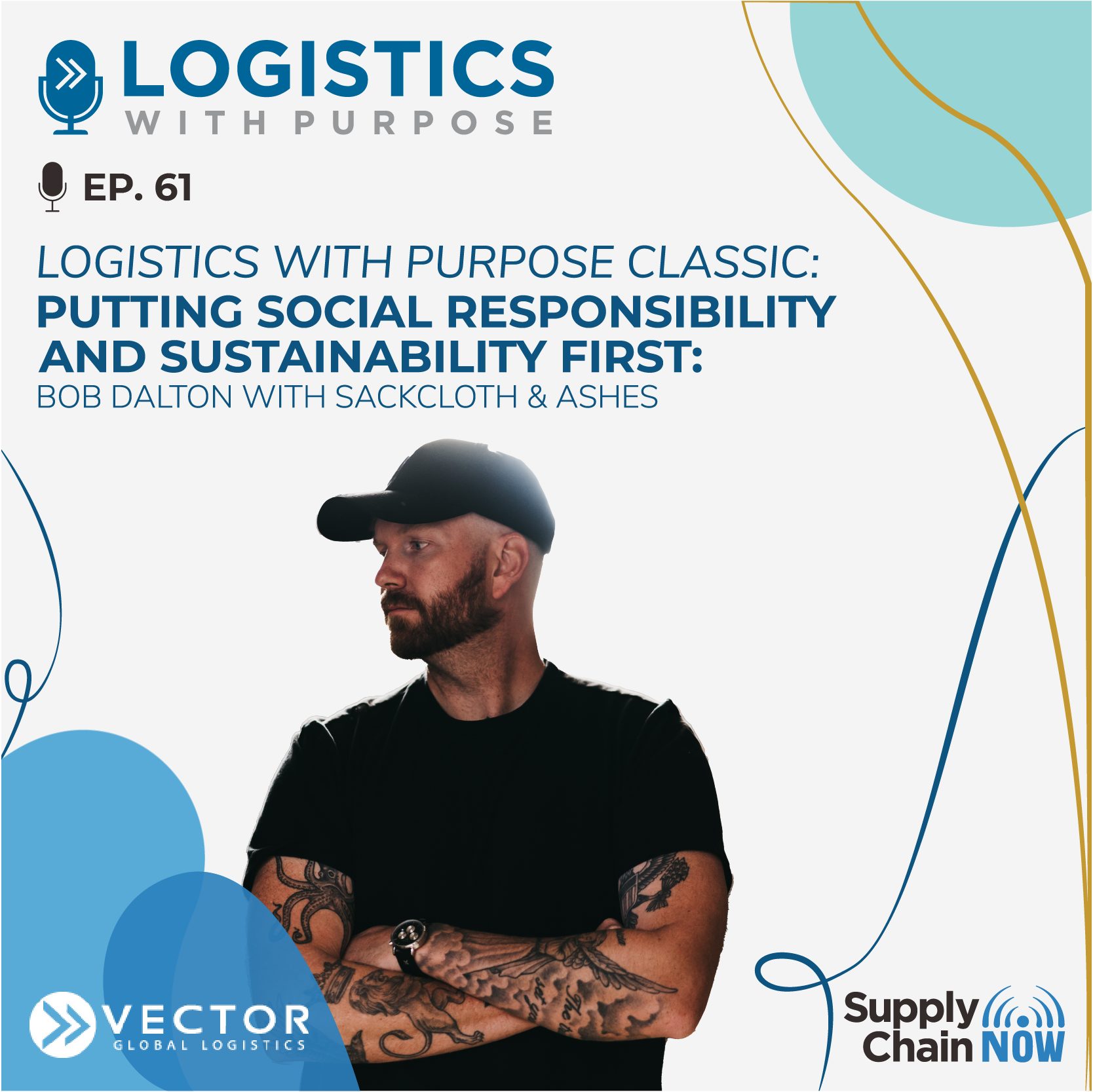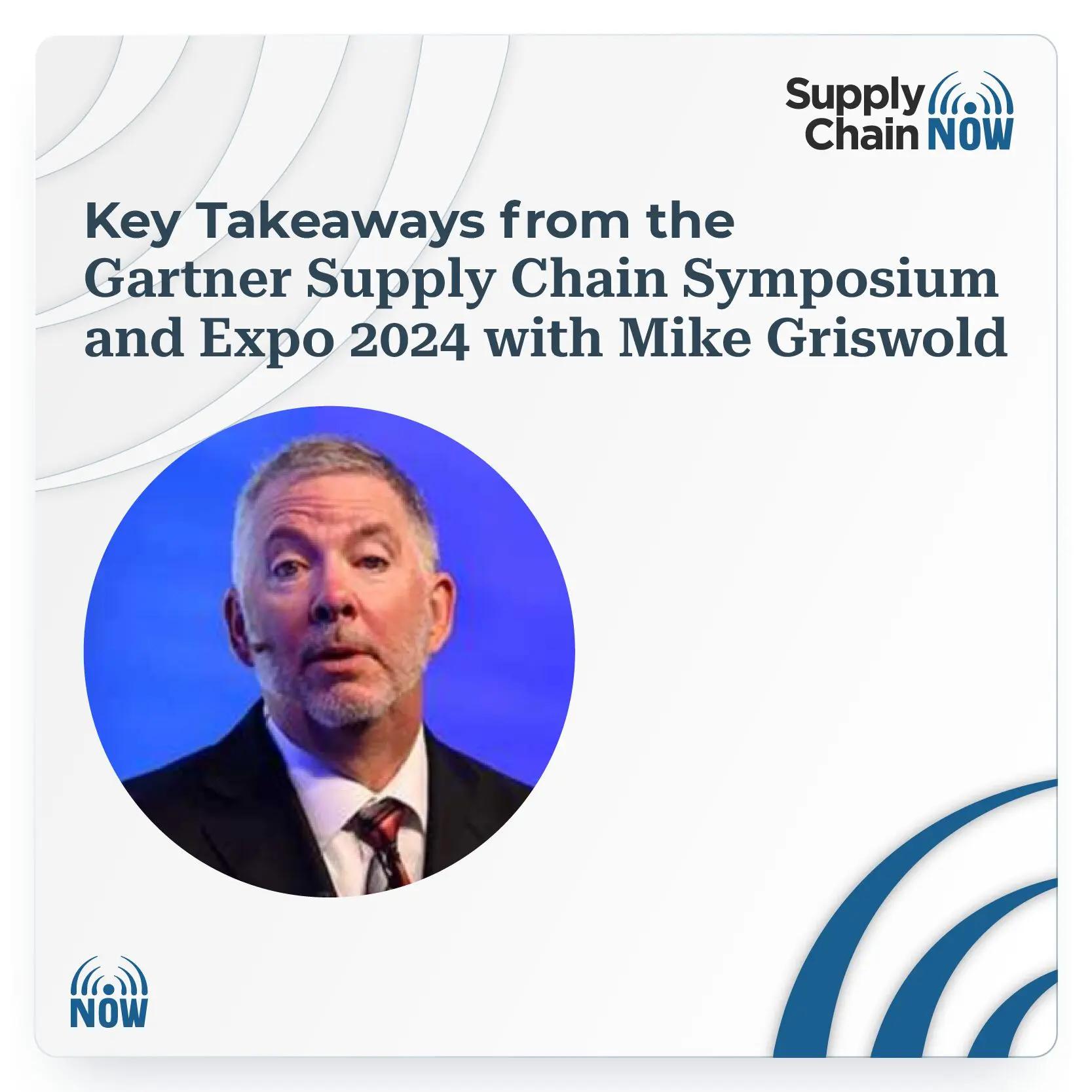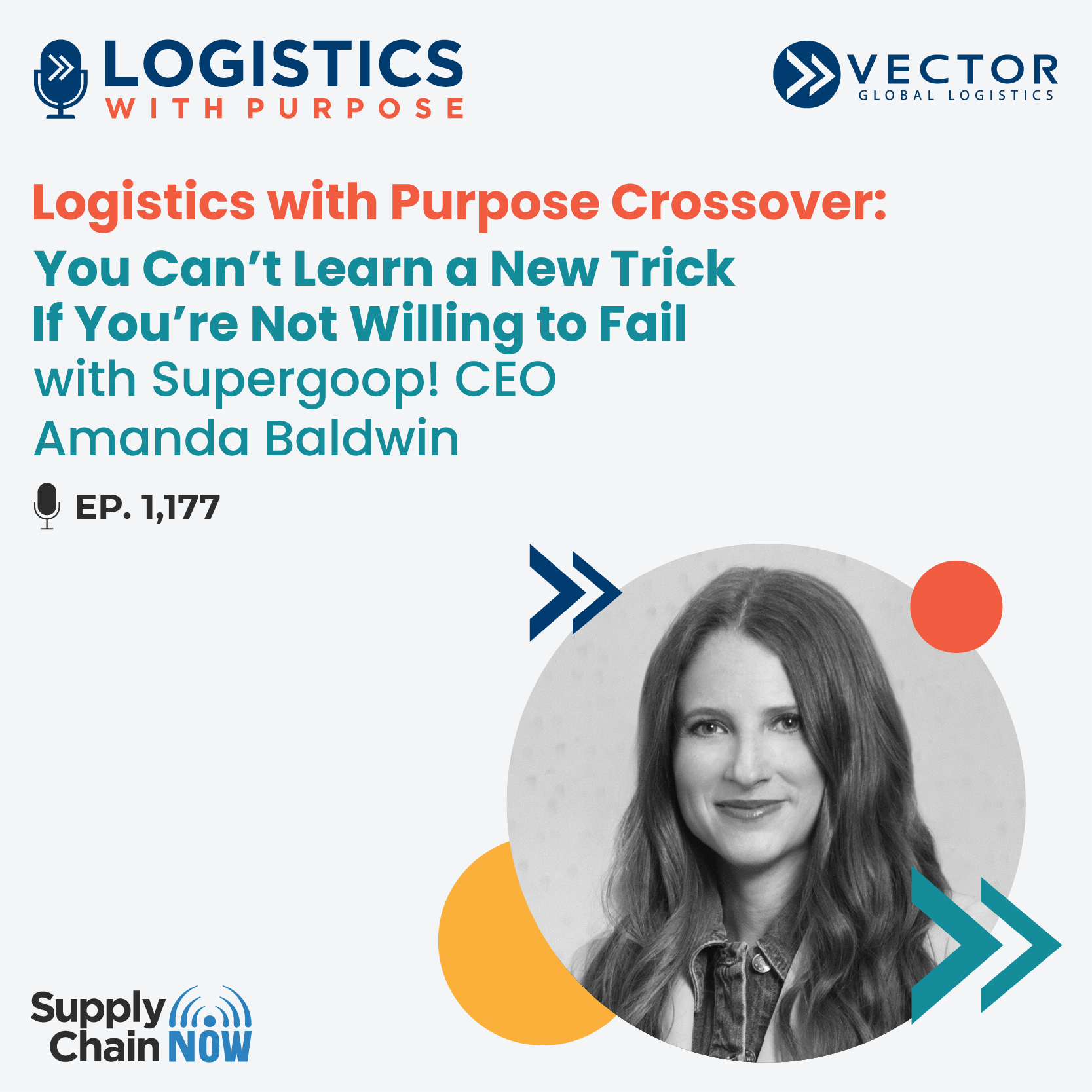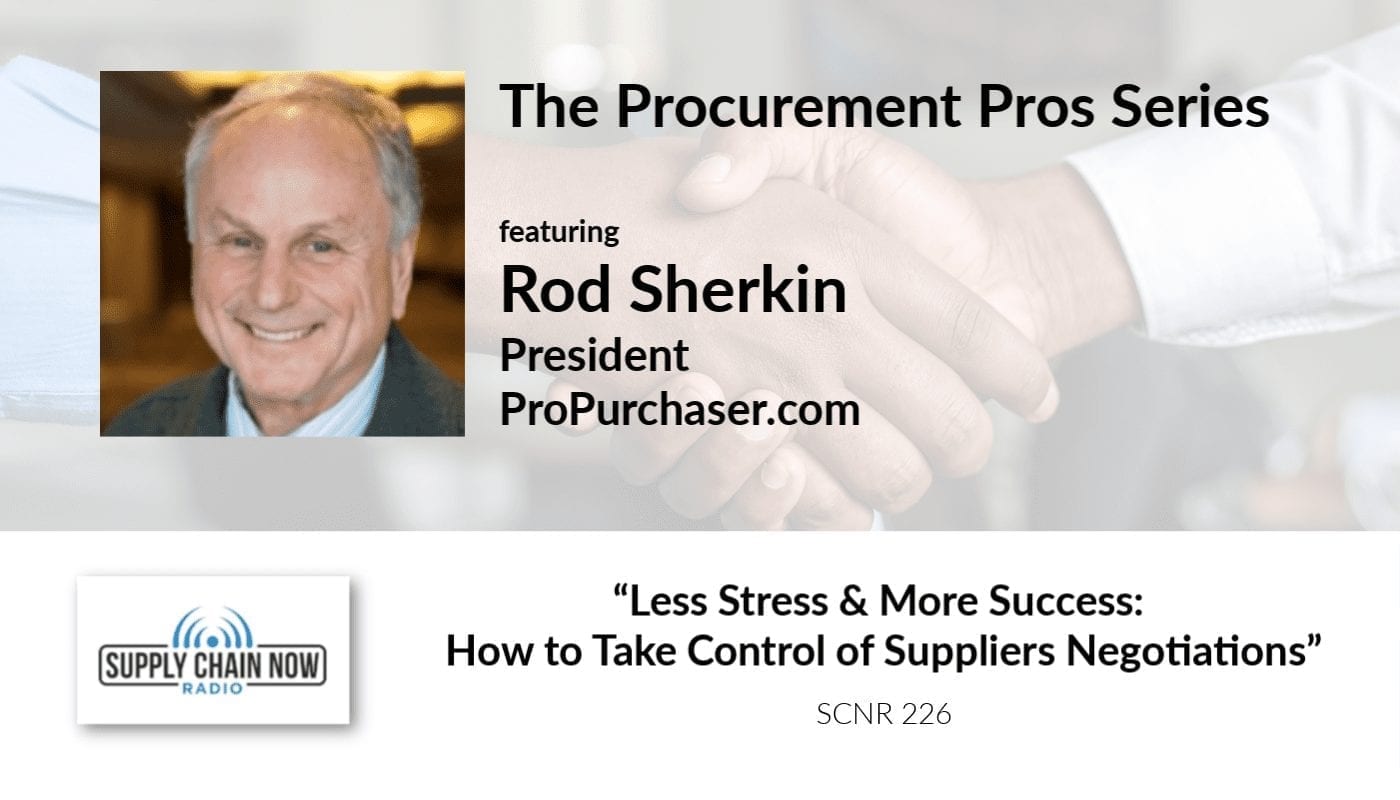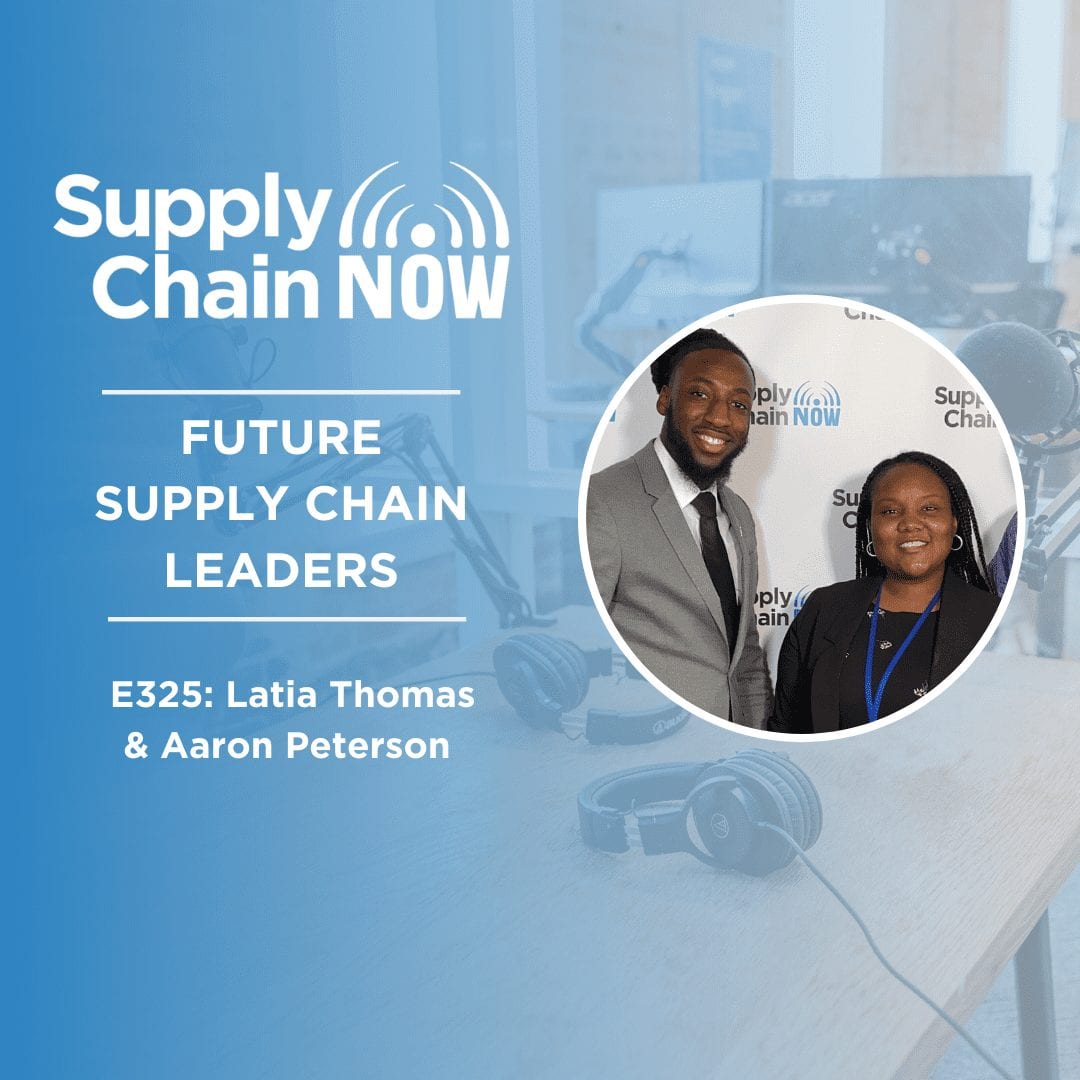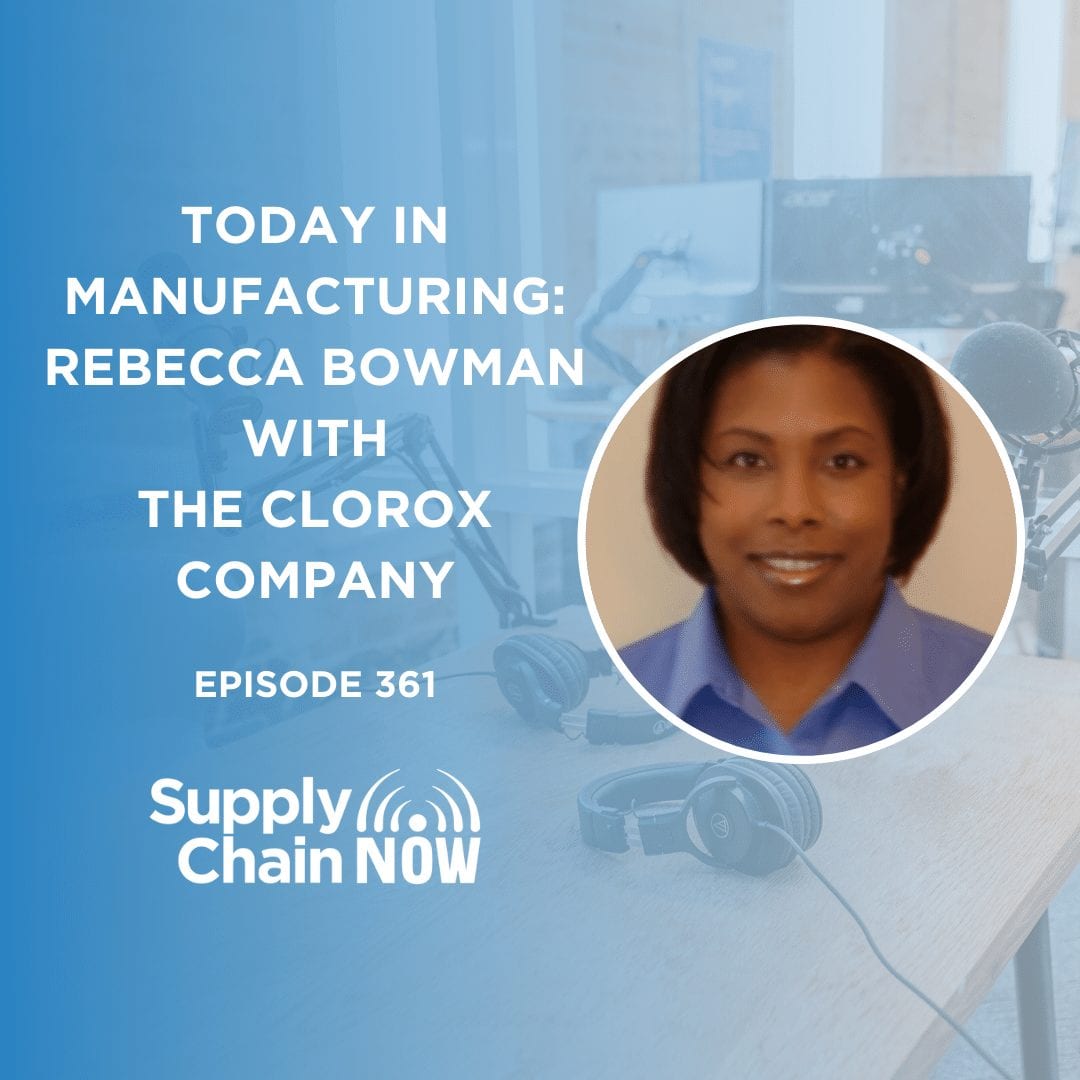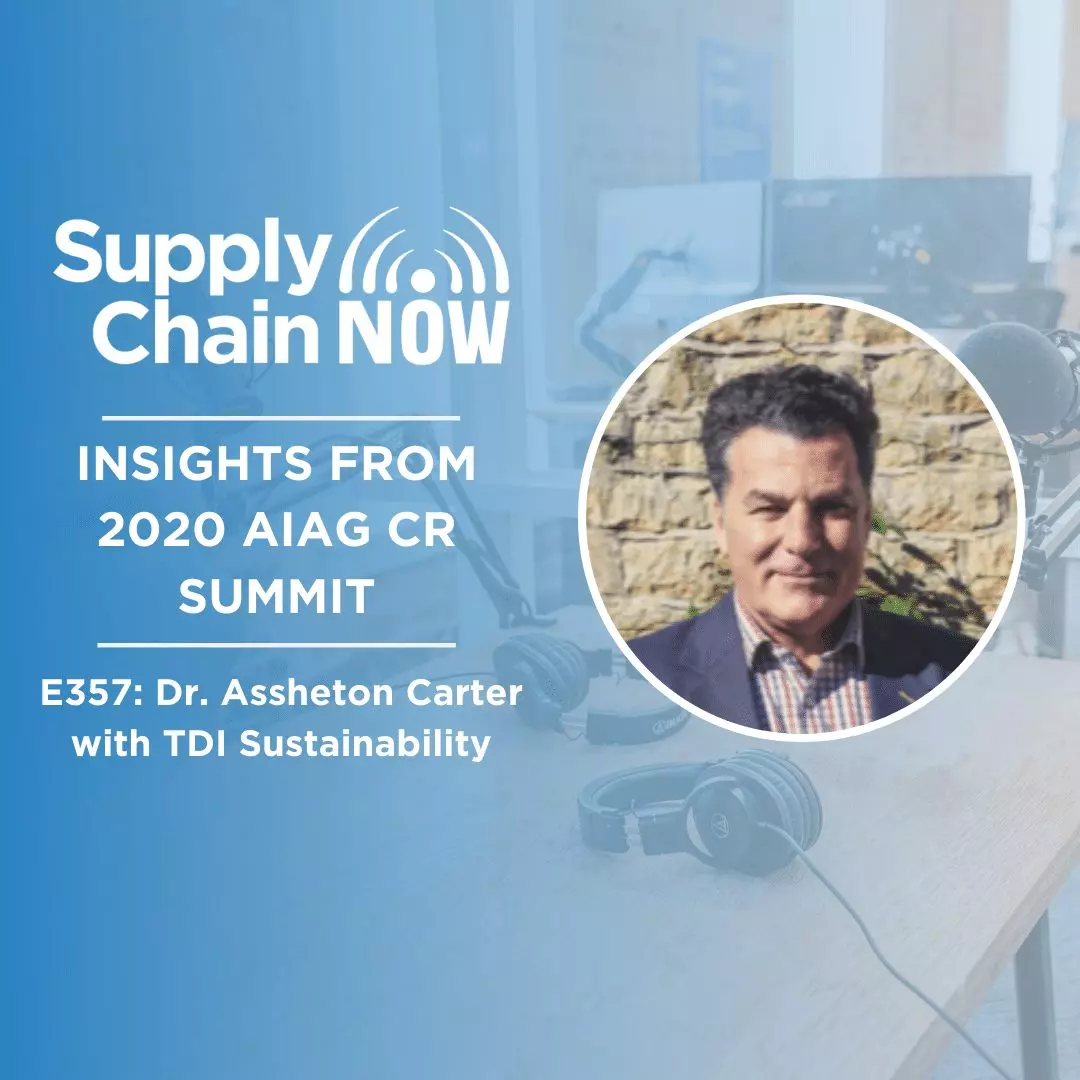Episode Summary
“If you are negotiating with less stress because you are well prepared, you’re going to spend more time thinking about your next move rather than worrying about being attacked.”
– Rod Sherkin, President of ProPurchaser
According to data that Rod Sherkin, President of ProPurchaser, has gathered by polling the hundreds of procurement professionals who attend his webinars, about 70% of people experience stress before a supplier negotiation. They report that this stress is primarily due to a lack of knowledge – especially when compared to the sales rep – and a lack of time to prepare.
Fortunately, there are some very practical steps that procurement professionals can take to increase their confidence (and reduce their stress) in advance of a negotiation. In this podcast, Rod describes those steps to Supply Chain Now Radio Host Scott Luton and provides some high-level instructions and incentives for carrying them out.
Rod’s four-point plan for negotiation with less stress includes:
- Preparing properly
- Negotiating prices in writing
- Put pricing management on ‘autopilot’ through the use of formulas
- Not meeting face to face with the supplier until the pricing has been agreed to
Episode Transcript
[00:00:05] It’s time for Supply Chain Now Radio. Broadcasting live Supply chain capital of the country. Atlanta, Georgia. Supply Chain Now Radio spotlights the best in all things supply chain the people, the technology, the best practices and the critical issues of the day. And now here are your hosts.
[00:00:29] Hey, good afternoon. Scott Luton here with you libeled Supply Chain Now Radio.
[00:00:32] Welcome back to the show. We’re excited to be continuing our Procurement Pros. series here today, offering Supply chain leaders several new ideas and best practices as always. And today we’re talking about effectively taking control of supplier negotiations. And really, how can you set yourself up for better success when it comes to negotiations? So stay tuned for that. So quick programing note. Like all of our series on Supply Chain Now Radio, you can find our replays on a variety of channels Apple podcast, SoundCloud, YouTube, wherever you get your podcast from, as always. We’d love to have you subscribe so you don’t miss a thing. Let’s quickly thank a few sponsors for allowing us to bring these best practices and innovative ideas to you, our audience. The Effective syndicate Verusen Supplychainrealestate.com, Epic’s Atlanta and many more. You can check out each of our sponsors on the show notes of this episode. Let’s welcome in our special guest here today. Once again, Rod Sherkin, president of ProPurchaser.com Rod. How are you doing?
[00:01:34] I’m doing fine. Scott, how are you?
[00:01:36] I’m doing fantastic. It’s great to reconnect with you. It’s been too long, but I’m really excited about this topic here and really just how pratical the insights and best practice and do we have pratical best practices that such a thing?
[00:01:52] I think so. They’re not as esoteric. They’re down to earth and usable. How about a usable best practices?
[00:02:00] You always put it better than I do that that is the best way to put. I think this is gonna be highly useful for our folks that are listening, that are in procurement or really anyone that negotiates. And anyone that has that typical human fear of negotiating women. Talk more about that in a second. But hey, before we pick your brain on how folks can get better at negotiating, we want to pose the lightning round to you.
[00:02:27] And we want to learn more about Rod Sherkin and have a bit of fun while we do it. Are you game for that?
[00:02:33] Sure. No, sure. You can like what you hear. But let’s try it.
[00:02:38] Are you ready for the light? I sure am.
[00:02:41] Okay. All right. Up first, what is your favorite all time movie, The Matrix?
[00:02:50] It’s my favorite All-Time movie. I’ve watched it six or seven times. The first matrix there for them. But the first one is by far and away the best.
[00:02:58] Well, now, I gotta say, we’re well, we’re doing the pre-show planning for this. And as I was figuring out what questions I wanted to pose to you as part of the lightning round, I would not have expected The Matrix to come back as one. Your favorite all time movies. I’m impressed. But you got a second? You got it. That’s one A. What’s the one, B?
[00:03:18] Avatar. I like science fiction and I like imaginative science fiction. Things that could actually happen. I mean, think about Matrix is it isn’t preposterous. It could happen. You know, Avatar. Yeah, it’s a little tougher, Dave. You know, transplant somebody brain into an avatar. But, you know, one day it’ll probably happen. So. But I like about science fiction. Is that it? It looks into the future and then kind of projects. What will happen to our species if. Yeah, if we continue through here, we are in love. Yeah. The art of the possible. Yes, it’s art of the possible.
[00:03:54] Okay. I might ask your red pill. Blue pill. Just kidding. Just kidding.
[00:03:58] Right. Take the red pill. All right. So tell us about your favorite recent read, whether it’s a book or a blog.
[00:04:09] It’s a book. My wife gave it to me for my birthday, which was a few months ago. And it’s something I never would have thought. It’s called The Second Mountain by David Brooks. People or PBS listeners, if they listen to the show, they watch the news on PBS on Fridays. There’s Sepah, so-called Brooks and SHEALES, and they talk up with the politics of the week. And this is the brooks of Brooks and shales is David Brooks. And he wrote a book called The Second Mountain, which is about, you know, what do you do when you’re forty five, fifty fifty five and you’ve kind of achieved most of what you wanted to in your career. And, you know, you’ve got no financial stability and you’re you’re kind of happy, but you’re not totally fulfilled. And, you know, if he calls out the first mountain and then he talks with the second mountain. Second Mountain is kind of how you find your passion. How are you? How do you figure out how to give back? You know, whether it’s, you know, to society, withers to your profession. And his point. It’s a good one and he’s very good writer and he’s a journalist as well. So he backs it up with lots of facts that you can be happy in the first mountain, but you can’t be joyful.
[00:05:21] And joy comes from, you know, giving yourself up to a greater costs. And that’s what the second mountain is all about. So there was it’s a really good book and something that, you know, I left it to the Second Mountain by David Brooks, is that right?
[00:05:35] Yes. Yes. Outstanding. All right. So continuing over the lightning round here, let’s talk about Rod. What is one habit of yours that you’d consider having a big impact on your business success?
[00:05:49] The deals? I think it’s how you make deals. So whether the deal is a personal deal with with a child or a spouse or whether your it’s a business deal with colleagues or suppliers or customers. I think what you’ve got to do is put your self into the other person’s shoes. You know, try to be empathetic. It’s hard to do sometimes and figure out how they win as well. If you’re always about winning for yourself without understanding how the other party wins, whether it’s personal or business, then I think it becomes one sided very quickly. And it’s not a lasting or sustainable thing. Whereas if you try to walk a mile in the other person’s shoes and put deals together, say a business where both parties win, then I think you wind up with injury and sustainable relationship. So I try to do that. I don’t always succeed. But if there’s one thing I’ve always tried to do is make sure that I understand how the other party wins and make sure that I’m not the only winner in a deal.
[00:06:52] Love that. Love that. I think we’re we’re kindred spirits in that regard. Okay. Number four. Fourth question here, reposed in a Rod Sherkin, president of ProPurchaser.com is in this ever more constantly connected world. How do you disconnect for our and our purposes?
[00:07:10] I guess there’s two kinds. First of all, I try not to get too connected in the first place. For example, right now on Facebook and I don’t worry about projecting my digital presence into the into the cyberspace, but to really disconnect. I try to take a walk every day where I live, not too far from a park in parts of the park at wooded area. So I find walking in wooded areas. That’s for your best best thoughts come. And you descant. I don’t take my cell phone. And then in the summers when I’m on vacation, I love to go on canoe trips. I know day trips. I don’t too old out a ticket to take a tent and sleep overnight. I could do it, but it wouldn’t be fun. Not with the arthritis. You know, just going out and canoeing and trying to get away from it all and, you know, trying to catch a loon in a lake or. Yeah, I live in Canada. So we not and we we do still have lots of lakes not too far from Toronto where you can’t see a loon in Canada, goose and things like that. Occasionally you’ll see a deer. So, yeah, just getting up and getting into nature. That’s how I like to just connect.
[00:08:21] I can just paint a picture with my mind with a lot of what you just described. And I think I think I caught a little or an hour the last fifteen seconds for the first word.
[00:08:32] All right.
[00:08:32] So let’s talk about one of my favorite and really I think our favorite topics is leadership consumed with the study of leadership. Day in and day out. I like it better understand from you, Rod, who was one of the strongest leaders you’ve ever worked with. And what’s one trait that made him or her more success when you don’t have to name names but feel free to?
[00:08:55] One’s name is Dawn Lokman. He was one of the presidents of Pillsbury Greene giant when I was there, I was the was the director of materials management and actually promoted to V.P. under him. And what made it Dawn was an unassuming guy, hardworking, never asked anybody to do anything he wouldn’t do himself. And what he did, which I think was different than most, is that he he wouldn’t take no for an answer. He’d say, wow, I want you to do this project. And I will. You people, not just me. People would say, well, I’ve never done it before. I’m not qualified. Yeah, but you could do it. So he’d always be challenging us. And, you know, if you fail, which we did not every time, but only when you ask people do things like that, there will be failure. He never criticized. He was very generous with his. Not just with it. It wasn’t. It gave you a responsibility. And it was very flattering. And you tried to rise to the occasion.
[00:09:57] And when I think of Don, he always surrounded himself with bright people and he would challenge them. And it was the most I mean, when I look back at my career, I probably had you know, it was most one of the most rewarding times when I worked for Pillsbury, working for Don Ludeman. What he did was he challenged you wouldn’t take no for an answer, actually stretched you all the time with the best of intentions. Yeah. We made him look good because he had people doing things around him that he couldn’t do on his own. And we all felt that we wanted to succeed and felt part of a team and felt complimented that he trusted us to do things that maybe other people wouldn’t have loved it.
[00:10:36] Okay. All right. So now thank you for your sportsmanship as we work through the lightning round here with you here. Rod. Sherkin. Now, let’s dove into the main topic right now. The center played here less, less stress and more success. How to take control of suppliers negotiations. So where we want to start before we walk through some tried and true best practices for improving your ability to negotiate. We want to kind of lay the groundwork, set the backdrop, so to speak. And I want to start with posing the question to you, why is preparation so important for negotiations? Rod.
[00:11:15] Well, you know, we’ve done a little bit of sampling, which we’ll get to in a minute. I’ll try to describe the pie chart I’m looking at. But if you don’t prepare, you know, whether you’re not just a negotiation, if you’re not prepared for an event, if you haven’t done your push ups and you you’re you’re you’re going to, you know, try to compete in an athletic event. You you’re going to feel stressed. So lack of preparation is something that I think we all feel is stressful. So to avoid stress in any situation, you need to understand what you’re getting into. You need to prepare for it. And whether it’s a physical exercise or mental exercise like negotiating is.
[00:11:58] And so preparation is kind of, you know, probably the most important thing you can do to at least alleviate the stress of something that you’re both to do this challenging.
[00:12:10] Absolutely. And it’s such a universal concept. And, you know, it’s free to do oftentimes. And it gives you a lot more confidence regardless if you’re getting to your point, running a race or or negotiating or or or taking a spelling test. You name it, right. Right. All right. Let’s. You alluded to some of this pop chart, and I know you all have been conducting research at ProPurchaser.com for four years, both formally through sorbets and informally with all of your work out in industry and in some of the industry research that’s out there as well. So you’ve got cumulated some data around some of the factors that calls stress related to negotiation. Right. Tell tell us more about this.
[00:12:57] Yeah. Wheatley’s right. We’ve been doing this for quite a while.
[00:13:00] We’ve had hundreds of people come to our webinars and get to ask people questions and we ask questions about, you know, do you feel stress before negotiations? And about 70 percent of the people say, yes, they do, and about 30 percent say they don’t. So the first thing was I was surprised by that, because you think people in procurement would understand that negotiating is a big part of the job. And if they feel stressed about it, why would you ever go into procurement in the first place? Because that’s one of the most important things you have to do. So we we started quantifying it and we found that about 43 percent of the people who are in procurement positions that they then part of their jobs to negotiate. Forty three percent say that they feel stressed because they don’t have enough information. They feel that they’re at a disadvantage when they’re sitting in front of a sales rep. And it’s it make sense of me. SALES reps usually only sell one or two things. They’re quite focused. They don’t, you know, whereas the supply chain people tend to buy many things. So it’s just it’s just hard to be as focused. I mean, they’re there. So even if you’re as you know, you start a question of being bright or intelligent, it’s a question of if if you have to if you’re buying a bunch of things, 15 or 20 different kinds of items, you’re up against somebody who sells one or two things. It’s hard to compete on a knowledge. So you lack information. That’s the second most important factor was a lack of time. And that was about 25 percent of the people. So between lack of information, lack of time, you’re at about 68 percent of the US, the stress. And so. So two thirds of the people interviewed or who answered our polling questions and we talked to said that it was lack of time and lack of information, which, of course, are related.
[00:14:53] You know, half the time you don’t have the information or about 17 percent said it was bullying sales tactics. So they were they felt stressed because they know it was an unpleasant experience because of the personality of the sales rep.
[00:15:12] About 10 percent said it was internal pressures, which is a real surprise. These are, for example, the controller and the company saying you don’t take an increase. We budgeted at X and it didn’t matter that the market. But, you know, maybe it was a plastic part of the resons had gone up for, you know, marketplace pressures.
[00:15:31] It raised the price of resin. There’s no way you can buy an injection molded plastic part for what you did last year. But they felt this pressure because they’re in internally, they were under pressure from people in finance or other areas.
[00:15:43] So I don’t know how you feel, Scott, but I looked at this and I thought, my goodness, if if most people, 70 percent feel stress and this is an important part of their job. Yo, yo, what what can we do as you know? What can we do as professionals to to help you? Yeah.
[00:16:07] You know, I think when when I saw it. So when I saw your research and data here, the lack of time never surprises me. Right. In fact, I was surprised at lack of time was with so little. No pun intended at 25 percent. Delfin not surprised with lack of info being the plurality here. Know we were talking before we went live on the podcast today about the procurement profession and I’m always careful when, not when I make generalities. And there you are too. But in my experience in manufacturing in the Supply chain industry, know there’s a lot of folks that don’t graduate from either high school or to your degree or for your degree or wherever they go formally to get a formal education and then launch a procurement career. In my experience, a lot of folks, they might land a different role within the organization. And then as they prove themselves and as our openings in the procurement department, they get promoted into a new role. All right. And so what does all that matter? Well, that matters. Because you would think intuitively that folks that work in procurement would understand the point. You made Rod that the negotiation comes with a territory. You’re procuring goods and services and who you’re procuring those from are recurring profit and in a very skeptical right job.
[00:17:28] It’s like the most important part of the job. Yes.
[00:17:30] So. So in my mind, at least, I think the the fear of negotiating is much more. I mean, I take a look at myself. I hate behind a car. And one of the reasons I hate buying a car is I hate the haggling and negotiating. And I don’t want to put a bad spin on on any one profession. But, you know, that’s a big part of it. Right. Yeah. So when I when I when I think about what drives fear, I think about it. It’s kind of a human thing. And when folks enter a procurement space, not based on their negotiating skills, but maybe other things, they’ve done so well, and then all of a sudden they got to negotiate more. Well, naturally, it’s going to create a lot more fear. You know?
[00:18:17] Yeah. Makes sense. I thought of it that way. Can make a good point, so. Well, there are some things we can do if we’ve. Maybe we should talk about that theorem.
[00:18:28] Ok, then this and this is where I love. Go back to the practical best practices or or as you put it, much better earlier. This can be highly usable. Been there, done that perspective. And that’s that’s why I like our theory together. Rod. So you have a proven tried and true four step plan for improving negotiations, right?
[00:18:49] Yes. For making them less stressful. For making them less of an adversarial thing. Yes, I. And in awe of process.
[00:18:58] Yes. And I would submit to you that if you can take the stress and the fear, not eliminate it, but take a lot of that out of any negotiating negotiations, they’re going to be more successful. Would you agree?
[00:19:12] Oh, yeah, for sure. You’re going to spend more time thinking about your next move rather than worrying about being attacked. Him EFT loser.
[00:19:20] All right. So let’s kick off with the first part of this. This four step plan.
[00:19:26] Ok, well, first off, first, you got to prepare properly and we’ll talk about that. That’s probably the most most time consuming is to prepare properly. But isn’t that hard to do? And then once you prepare properly, you should probably negotiate pricing in writing. You want to do things in writing. It’s much more objective. You don’t take away the emotion. You nobody stare, you know, staring across the table at someone. And then once you’ve you’ve got your pricing negotiations going and writing, then the third thing you should do is try to create formulas, put pricing on autopilot and we’ll explain a little bit. I’ll try to explain a bit more about that later.
[00:20:01] And then when you do meet in person, because that’s usually what’s more stressful, you should take the pricing off the table so you make a rule. If your sales rep wants to meet you, go for lunch. Whatever it is, agreed to do it only after the prices are agreed to. We could talk about service and quality at lunch, but you shouldn’t talk about prices. So get the pricing kind of done without a face to face intimidation thing that make a be going on causing the fear. And if you do those four things, it goes a long way towards reducing. I think the stress and the fear that comes along with negotiating will put.
[00:20:37] So the recap real quick before we take a deeper dove in each first step, prepare, prepare, prepare properly. Easy for you to say. Step two, negotiate in writing. Step three, you’re in. Want to create formulas to put pricing on autopilot. And step four, meet in person basically at the right time. Let’s take a deeper dove on that first one neuron.
[00:20:57] Ok. So the first thing you need to do is track changes to your suppliers costs. So let’s say you buy bolts, steel bolts just to make it easy. And let’s say you pay a dollar for a bolt. You’ve been paying a dollar for the last year and all of a sudden the price of steel drops.
[00:21:18] Well, that’s kind of a clue. You shoot. You should be paying less, obviously, for the boat. Question is, how much? So first you you have a system in place to track changes to the raw materials that your suppliers buy. For example, you buy plastic parts, you do plastic resin, you buy bolts, you do steel, and then you need a way to estimate the approximate impact that these changes should have on your prices. So, for example, you buy steel bolts and the price of steel drops 10 percent. What should that have? What effect does that have on your pricing? And if you don’t know for sure, just a good rule of thumb is half. So if half of it if half of what you’re paying for is the steel that this the bolts supplier buys and the other half is what he needs to, you know, operate his machines, covers overhead, make a profit. So a 10 percent drop in steel probably should mean a 5 percent drop in bolt if you approach your supplier that way. And he says all that’s not true. You know, 60 percent of what we pay for is a steel. Then you just adjust it. You say, OK, a 10 percent drop in steel would be a 6 percent drop in the bolt price.
[00:22:24] So the first thing you do is track the changes. You don’t have to get your supplier to help you do that and estimate the impact that these changes have on what you’re paying for, whatever it is you’re buying. And then what you do is you when you notice that, for example, the price of steel is gone down and you’re about to sit down with your supplier. You actually send them the chart and you do it an embedded, embedded chart and in an email or send them a just spreadsheet to say, oh, I’ve noticed the price of steel is down 10 percent. And you say to them, we expect, therefore, that, you know, you’re we’re gonna pay you ninety five cents for the pull instead of a dollar. And you do this. You’re doing it in writing this before you meet. And and then you see what the sales are up to sales. Or it might come back and say, well, actually our steel special. Go down 10 percent. It only went down 8 percent. Fine. So give us a 4 percent decrease instead of a 5. But the point is, you’re not doing it face to face and you’re doing it in writing and it’s a lot less intimidating and actually put you in a much stronger position because you’re going to have the facts on the table before you actually meet.
[00:23:40] Sometimes you have to be a you know, sometimes you’ll buy things that are a little more difficult to estimate than bulls. Bolts are only made out of steel. Maybe you’re buying copper wire, in which case you’d have to keep track of copper prices and whatever the insulator is. APICS. I mean, you might buy electric motors. In that case, you want to keep track of four or five different things. But the point is you need to have a system for keeping track of of what your suppliers buy and some way of roughly estimating the impact you have on pricing and then conveying that to the to the supplier. So that’s kind of the first first thing you need to do is to negotiate properly, is to have a way of understanding what your suppliers costs should be doing based on what’s happened to their input costs and how that should affect the things that you’re buying. So that’s what preparing properly is.
[00:24:36] Terrific Drac, no estimate. All right. It’s all about preparing properly. Let’s move in. The number to which we’re we’re talking about negotiating and writing, right?
[00:24:45] Right. So what you’ve done this once you’ve you’ve you’ve estimated that you should be paying less for or more. I mean, clearly, raw material costs could go up. So as you move, it’s good for the goose is good for the gander. It goes both ways. So if the price went up 10 percent, you would say, well, I would expect to pay a dollar fine for the bolt. Now, when the price of steel goes up, you probably are going to get a call from the sales rep before you even have a chance to call them, because that’s always what happens.
[00:25:15] So they call you a Steeles, up 10 percent. We’ve got to raise the price of bolts and that’s OK. I mean, that’s fair.
[00:25:21] They everyone’s got to make a margin and stay in business and just make sure they don’t raise it more than the 5 percent. So. So the second thing you do is, is when you have a you know, negotiation writing is kind of natural. Once you once you’re tracking these things and you’ve you’ve got the information, you basically send the supplier the information and he’ll come back and you’re going to be negotiating automatically.
[00:25:48] Well, it isn’t a percent. It’s it’s not 10 percent. It’s 8 percent or it’s a 60 percent of our costs is 40 percent of our costs. And you’re actually negotiating the supplier. You know, the sales rep might not even realize that he’s just defending maybe his position.
[00:26:01] But what you’re really doing is you’re negotiating the price without having to do it face to face. And you’re in a much stronger position because you’ve got the facts on your side and you’re controlling the narrative. So that’s really all there is negotiating. Writing is don’t just go, you know, don’t just do these calculations on your own and be sharing them through e-mails and spreadsheets with here with your supplier.
[00:26:26] But it also would you agree that it also allows you a chance to you know, sometimes when it when in μου where we’ve been negotiating that first offer and sometimes a third offer can really put a B in our bonnet. Right. And so being able to kind of slow things down and and give yourself time that comprise a response is so much easier to control the emotion. Get the emotion out of negotiating by conducting it in writing. S Greene right.
[00:26:58] Absolutely. Everything.
[00:27:00] I mean if you have to you know, even in your personal life, if you’ve got a difficult letter to write to somebody or difficult message to communicate to somebody, it’s often better to do it right. OK. And then when you when you sent a graph, let’s say the suppliers sent you a letter to say, hey, we have to raise our prices 3 percent. And this made out of a plastic resin. And you send them an email with a chart that shows that plastic resins are actually down 10 percent. You can just embeded and ask a question. You don’t even have to negotiate. Say, hey, why are you asking for 3 percent more when your rising costs are down 10? I’m just curious. Could you please explain? That’s not confrontational.
[00:27:48] It’s not it’s not really negotiating. Ostensibly not negotiating. But it really is negotiating. Because what you’re saying to the sales rep is, hey, you know, we you know, more easy money here. We’re we’re watching your costs. We we know what’s happening. If you want to play fair, fine. But you know, no more, you know, Chicken Little, Aqeel, the sky is not falling. You know, we we understand what’s going on.
[00:28:12] And so this when you’re negotiating Ryder, you can also pose, you know, these innocent questions that really will stand you in good stead because, you know, sales are up. They’re interested in the relationship. They know. People don’t buy things from people they don’t like or trust or they don’t want to buy things. So they want to keep the relationship solid. They don’t want to get on your bad side. And so when you ask questions like this, they’re going to go to their boss and say, hey, is it really true? Is a plastic resin really down 10 percent? Why are we they may not know. The sales reps often don’t know what the raw material costs are doing.
[00:28:48] So it your sales are up almost becomes a your advocate internally because they’re going to go to their boss and say, how am I going to sell this three three cent increase, the 3 percent increase on the plastic part when the resons down. And that’s like that’s going to really stand. You could step because you should you should be paying less clearly and they’re going to have to come to the table. And if either come up with some really wild story, which probably won’t happen, what’s really going to happen is they’re going to say, yeah, you’re you know, because you’re such a good customer and if you promise not tell anybody else. Well, we’ll hold the price. We won’t raise it or maybe even reduce the price. So that’s the second set. You know what?
[00:29:27] One more thing about negotiating and writing this moment is really important. And regardless of plotting or else where you love, Tom’s negotiating. When it’s verbal, you’ve got a variety of players, you’ve got some very honest and transparent and truthful folks. And then you got folks that are looking to close a deal by all means necessary. That’s right. What I love about writing is that it gives you the opportunity to be very clear. You know, I’m a big I’m a big believer in bullet points. I’m guilty as charged up at bullet points, everything. But when you’re negotiating and writing, you can address every single point with a very clear and coherent and and transparent response. And it adds some some guidepost to the conversations that that that oftentimes really needs them. Right. Rod.
[00:30:13] Right. Right. And also the sales rep. Think of it from his or her point of view. They’re there often. You know, they have marching orders from their boss. Hey, go get that 3 percent increase. And if you negotiate in writing and you give the sales rep the chart that says, hey, that’s not fair. It helps the sales rep as well. So maybe the sales rep doesn’t have to be as forceful. Maybe they don’t have to be as, you know, confrontational with you because, you know, they’re they’re worried about not making the sale.
[00:30:44] They’ve got to make the sale. They don’t get paid if they don’t. And now you buy by giving them something in writing. You’re helping them convince their their management that it’s unreasonable and that you really should be reducing the price. And it takes a stress off the sales rep, which relaxes them, which will relax you. And you’re you’re actually taking control. Yeah. Every you’re taking control, you’re helping them help themselves then. OK. In the number three thing was to, you know, put pricing on automatic pilot. Well, you have almost there if you’ve got when you negotiate in writing and you agree to an increase based on what’s happened to raw material cost or you’ve got your supply to agree to a decrease because, you know, plastic resin costs are down or Steeles down for the for the bolts, just formalize it. Say, well, look, you know, every time steel goes up 10 percent, we’ll give you a 6 percent increase every time it goes down 10 percent. You give us a 6 percent decrease. You have kind of got a automated pricing. And once you’ve got that and you’re almost there just by negotiating rating and getting them to to agree with you or at least make some sort of change to their pricing based on the facts you’re presenting then by just saying, let’s make a formula. The formula is 60 percent of the change will, you know, within it will be passed on either way. And then you have this really on automatic pilot, you know, your basic taking virtually all the stress away. And once you’ve done that, if they still want to meet. Great. But, you know, pricing is not an issue of pricing is automatic pilot. And you can meet with their sales rep and they’re going to be relaxed because they don’t have to push some sort of increase through that. They they you don’t want to take because you help them convince their management that it’s not fair.
[00:32:32] So now you’re on a kind of a fair and maybe not equal isn’t quite the right word, but it’s it’s it’s an objective and rational way to price. There’s they’re going to make it cover their margins. I mean, all you’re really saying to them is, look, raw materials go down. We want a lower price. You’re not asking them for, you know, skinning their margins or reducing their overhead coverage.
[00:32:56] So everybody stays in business. Everybody’s kind of going to benefit from this because now it’s you can do is take negotiations really to the next level, which is another topic. But once you you’ve kind of gotten rid of this adversarial kind of stressful, you know, exchange with sales reps and your suppliers, it really puts you on a solid basis to talk about maybe doing collaborative things and maybe, you know, helping both parties do better by working together on joint projects, which is another subject. I know, but certainly takes a stress out of negotiating if you follow these four steps.
[00:33:39] Yes. And it opens up the door to doing all kinds of other things that create more value. So we’ll recap these real quick. First off, we’re going to prepare properly. Number two, negotiating in writing, which sounds simple, but huge impact Miura. Number three, creating formulas to put pricing on autopilot. That’s one less thing to worry about. Of course, if they’re smart and informed crafted formulas, I’m sure. And then fourthly, meet in person only after prices are agreed, especially if you’re dealing with a pressure pressure cooker. On the other side of the table. Right.
[00:34:18] Especially if it’s you know, this is the you know, the people who if you’ve had a bullying type sales rep. And you’re saying to them, I’m not. You know, you just test the work anymore. I’m not going to be bullied into paying more for something when I can prove Sheer costs are down. If you insist on doing that, I mean, the only people get to bully in those situations are monopolies. You know who they don’t. They don’t worry about it.
[00:34:43] But if you have a monopoly situation that’s different kettle of fish, it’s probably a you shouldn’t be in the air. Your job isn’t so much to negotiate in those cases to find another source. So that, you know, there’s this really if you if you’re in a marketplace where there is competition and you’re being reasonable with the supplier and you’re allowing them to make cover their margins, and if they still insist on being unfair, then you’re. That’s that’s the the tale. That’s your signal to go find another supplier.
[00:35:20] Outstanding. All right. So here’s we close the interview with Rod Sherkin, president of ProPurchaser.com. We want to make sure and I like your approach, your Rod. You’re always looking to give agnostic best practices. But ProPurchaser.com is a great resource for folks that may be looking for Rizos resource along those lines. So tell us kind of in a in a nutshell what the platform offers.
[00:35:44] Well, it certainly allows you to research the suppliers costs quite easily, it depends if you if you’re only buying, say, steel bolts that you only buy steel fasteners at your job, then you probably could go to a Web site that just reports on metals and you would have all the information you needed. But if your job involves buying a variety of things, so maybe plastic parts and metal parts and paper packaging, chemicals, things like that, then ProPurchaser fits those situations because we track a variety of things. Ninety nine and a half percent of everything used him in the North American economy. So that’s one place we fit and it’s very easy to look at uptakes, seconds to check things out. And also communicating with suppliers. If you’ve got a charter graph, it’s just a few clicks and you’re sending an email to them with that chart embedded. You could put a note in, you know why? Why is your price going up when the raw materials are going down? So we make it easy to do a lot of these things, but I don’t want people to think that, you know, that you need to join ProPurchaser to do it. You don’t. If you’ve got the time. And if what you buy is fairly simple, you can do this. All of this stuff with Excel and your own e-mails.
[00:36:58] What? OK. So. But you offer a free trial, right?
[00:37:01] Yes, we do. Of course, we’ve never had anybody join. We’ve been in business 19 years. And I don’t think we’ve ever had anybody join without taking out a child first to make sure it works.
[00:37:12] Ok. And we’re gonna offer we’re going to include a link to that in the show, notes of this episode. So Rod really appreciate your approach here. I think this is this. This is help. This helped people far beyond procurement. I think this is a these best practices can help in a variety of different ways. We all have to negotiate the adult world. Right.
[00:37:33] Run like you like baby who you have. I guess you could even do cars nowadays, can’t you? Because their Web site now that we’ll show you what the price of a car should be, what the markups are. And you can. You were saying you don’t like to negotiate cars.
[00:37:48] Well, maybe, maybe I can either call these four steps and go back where I want. Yeah. Maybe get a better deal. You never know. I’m always lucky that day. All right.
[00:37:58] Well, thanks so much. Rod Sherkin, president of ProPurchaser.com, for joining us here today. As we walk through tips for effectively, not only effectively taking control of supplier negotiations, but also how to increase enhance your ability to negotiate so you can check out the replay all everywhere you get your podcast from and you can check out Rod Sherkin at ProPurchaser.com. Thanks so much, Rod.
[00:38:23] Well, thank you. Thanks for having me. You bet.
[00:38:26] Ok, so we’re gonna wrap up. Well, just a couple of quick announcements. As always, you know, if you hear an idea or a resource or something, you’ll learn more about and can’t quite find it B even via Google. You can shoot us a note. Talk to our chief marketing officer at Amanda at Supply Chain Now Radio dot com. We’ll do our best to serve as a resource for you and point you in the right direction. Also, we invite our audience to come check us out in person. We’ve got a slew of events. We are in Atlanta through the end of the year, which allows us to take a breath while still churning out content from a lot of places we’ve been. But come January, we’re gonna be at SC Competes Lu in a roundtable on January 15th where they’re bringing in someone from Narced Track to talk about some of the regulations in the transportation industry and what it may mean for your business. Public event, you can go to Atlanta, see SCMP dot org to learn more. We’re gonna be out in Vegas in February with the reverse Logistics Association Conference and Expo Outstanding Group that happened to be based in Atlanta. But they’re a global organization that’s growing, as you might imagine. Reverse Logistics in this e-commerce world are growing in importance by the hour. And this group really does a great job helping folks uncover better ways of handling returns and handling reverse Logistics and sustainability and about variety of other things. February 4th through the 6th in Las Vegas opened to the public. You can learn more at R L A dot org and then mutex. One of the largest supply chain trade shows in all of North America comes back to Atlanta March 9th through the 12th.
[00:40:03] Twenty, twenty. Now again, we can be broadcasting lab throughout all four days of that trade show, but they’re also hosting our 2020 Atlanta Supply chain Awards on March 10th, where we have Christian Fisher, president and CEO of Georgia-Pacific, serving as our keynote and Sherkin Cooper serving as our emcee. Sharne serves as the executive director of the Atlanta Committee for Progress. Moad X are our backdrop for that. Lance Supply chain awards is free to attend middeck show dot com MDX showed outcome. And also you can learn more about the Olina Supply chain awards, which nominations are open, registrations are open and sponsorships are a. Atlanta Supply chain Awards dot com. One final event. We just firmed up a an event we were at last year were bet great to be back with them in twenty twenty of the Association for Manufacturing Excellence in their Atlanta twenty twenty lean summit here in May, twenty twenty May 4th to the 7th. That’s also open to the public and you can learn more at A.M.E. dot org. Once again, big thanks to our guests here today. Rod. Sherkin with ProPurchaser.com to our audience. Be sure to check out other upcoming events, replays of our interviews, other resources at Supply Chain Now Radio dot com and you can find a Snapple podcast, SoundCloud, all the other leading sites where podcast can be found. Be sure to subscribe to go missing thing on behalf of the entire team here. This is Scott Luton wishing you a wonderful week ahead and we will see you next time on Supply Chain Now Radio. Thanks everybody.
Featured Guests

Rod Sherkin is the founder and president of ProPurchaser.com. Prior to entering cyberspace, he was the senior executive responsible for supply chain for both Pillsbury and Ball Packaging, where, for 15 years, he honed his negotiating skills with suppliers. Rod has spent the last 20 years sharing what he learned with other procurement professionals. Learn more about the company here: www.ProPurchaser.com
